- Academic Year 2023-2024
- Academic Year 2022-2023
- Academic Year 2021-2022
- Academic Year 2020-2021
- Ramp-Up Seminars
- Academic Year 2019-2020
- Academic Year 2018-2019
- Academic Year 2017-2018
- Academic Year 2016-2017
- Academic Year 2015-2016
- Academic Year 2014-2015
- Academic Year 2013-2014
- Academic Year 2012-2013
- Academic Year 2011-2012
- Academic Year 2010-2011
ACADEMIC YEAR 2023-2024

UP NEXT:
June 11, 2024
1st Annual Pride Lecture
Department of Neurology and Neurological Sciences
Faculty Hosts: Michael Ryan
LOCATION: NRB 132 Auditorium
SPRING 2024

June 11, 2024
1st Annual Pride Lecture
Department of Neurology and Neurological Sciences
“Corticostriatal Plasticity in Motor Learning and Memory”
PREVIOUS SEMINARS
FALL 2023
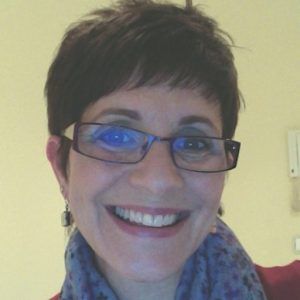
October 17, 2023
Haley E. Melikian, Ph.D. (Faculty Host: David Krantz)Department of Neurobiology, University of Massachusetts
“Presynaptic Dopamine Transporter Regulation: Tipping the Scales Against Cocaine Reward”
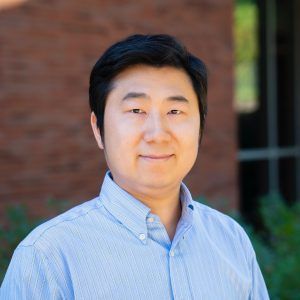
October 24, 2023
34th Annual H.W. Magoun Distinguished Lecture
Weizhe Hong, Ph.D. (Faculty Host: Felix Schweizer)Departments of Biological Chemistry, Neurobiology, and Bioengineering, University of California – Los Angeles
“The Neuroscience of Prosocial Behavior”
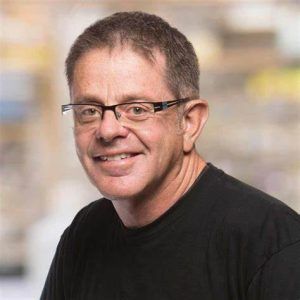
October 31, 2023
Martyn Goulding, Ph.D. (Faculty Host: Jack Feldman)Department of Neuroscience, The Salk Institute
“Mapping the Sensorimotor Circuits for Touch and Movement”
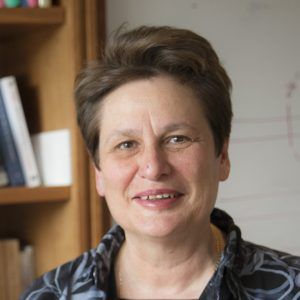
November 28, 2023
33rd Annual BRI Neuroscience Poster Session Distinguished Lecture
Location: Geffen Hall 130 (Iris Cantor Auditorium)
Catherine Dulac, Ph.D. (Faculty Host: Stephanie Correa)Department of Molecular and Cellular Biology, Harvard University
“Neurobiology of Social and Sickness Behaviors”
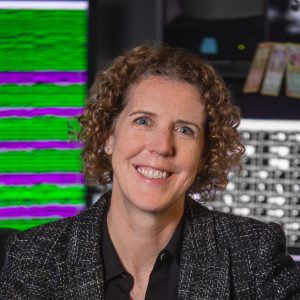
December 05, 2023
POSTPONED
Integrative Center for Learning and Memory (ICLM) Distinguished Lecture
Elizabeth Buffalo, Ph.D. (Faculty Host: Andrew Wikenheiser)Department of Physiology and Biophysics, University of Washington
“Neural Dynamics of Memory Formation in the Primate Hippocampus”
WINTER 2024
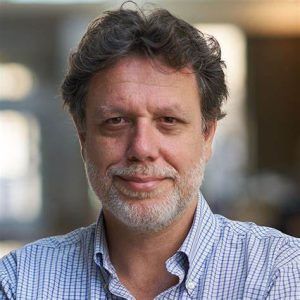
January 09, 2024
Camillo Padoa-Schioppa, Ph.D. (Faculty Host: Alicia Izquierdo)Departments of Neuroscience, Economics, and Biomedical Engineering, Washington University in St. Louis
“A Neural Circuit for Economic Decisions”
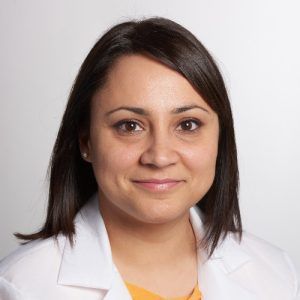
January 23, 2024
Silvia De Rubeis, Ph.D. (Faculty Host: Carlos Portera-Cailliau)Department of Psychiatry, Icahn School of Medicine at Mount Sinai
“Developmental Functions of the Autism Risk Gene DDX3X“
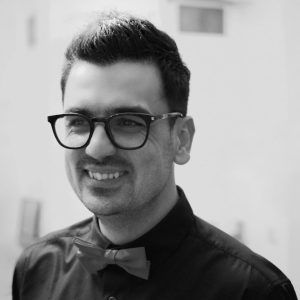
January 30, 2024
21st Annual Arnold Scheibel Distinguished Postdoctoral Fellow in Neuroscience Lecture
Nazim Kourdougli, Ph.D. (Faculty Host: Felix Schweizer)
Laboratory of Dr. Carlos Portera-Cailliau
Departments of Neurology and Neurobiology
David Geffen School of Medicine at UCLA
“Sensory Circuit Differences During Early Postnatal Development in Fragile X Mice”
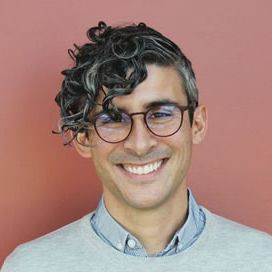
February 06, 2024
Ethan Hughes, Ph.D. (Faculty Host: Lindsay De Biase)Department of Cellular and Developmental Biology, University of Colorado School of Medicine
“Oligodendroglia: Implications for Adult CNS Plasticity and Repair”
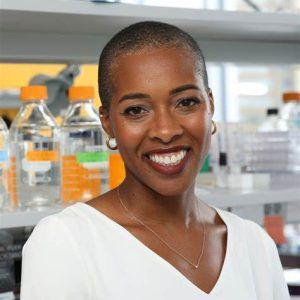
February 13, 2024
3rd Annual Black History Month Special Lecture
Bianca Jones Marlin, Ph.D. (Faculty Host: Felix Schweizer)Departments of Psychology and Neuroscience, Columbia University
“Bridging the Gap Between Innate and Learned: A Parent’s Role in Promoting Survival”
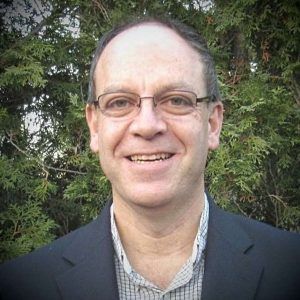
February 20, 2024
Location: Geffen Hall 130 (Iris Cantor Auditorium)
Jaime Grutzendler, M.D. (Faculty Host: Lindsay de Biase)Department of Neurology, Yale University
“Uncovering Cellular Mechanisms of Neurodegeneration One Image at a Time”
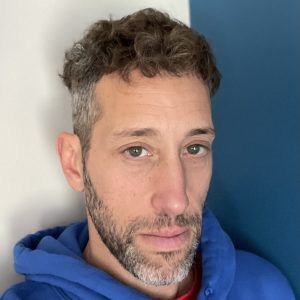
February 27, 2024
Michael J. Krashes, Ph.D. (Faculty Hosts: Avishek Adhikari / Stephanie Correa)National Institute of Diabetes and Digestive and Kidney Diseases, NIH
“State-Dependent Prioritization of Feeding and Parenting Behaviors”
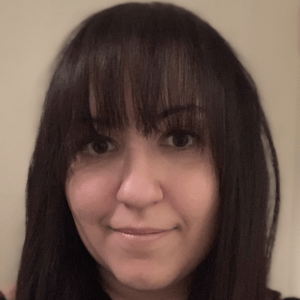
March 12, 2024
Georgia Panagiotakos, Ph.D. (Faculty Host: Tiffany Ho)Department of Neuroscience, Icahn School of Medicine at Mount Sinai
“Investigating DynamiCa++l Mechanisms Underlying Cortical Development and Disease”
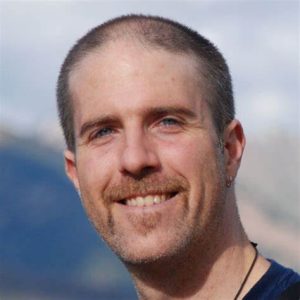
April 02, 2024
Daniel Butts, Ph.D. (Faculty Host: Alex Huk)Department of Biology and Program in Neuroscience and Cognitive Science
University of Maryland, College Park
“The Cortical Representation of High Acuity Vision”
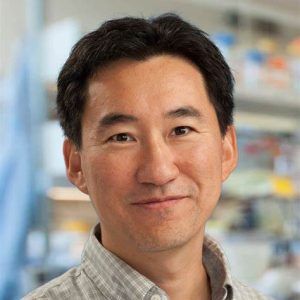
April 16, 2024
Byungkook Lim, Ph.D. (Faculty Host: Avishek Adhikari)Department of Neurobiology, University of California – San Diego
“Cortical Interneuron Dynamics underlying Drug Seeking after Withdraw”
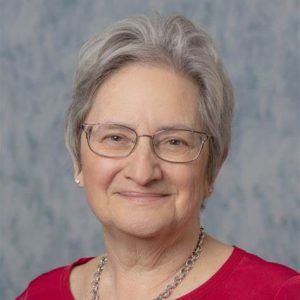
April 23, 2024
27th Annual Charles H. Sawyer Distinguished Lecture
Naomi E. Rance, M.D., Ph.D. (Faculty Host: Laboratory of Neuroendocrinology)Professor Emerita
University of Arizona College of Medicine
“Brain Circuits Mediating the Generation of Hot Flushes”
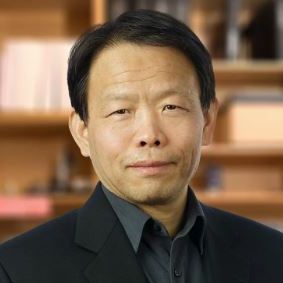
April 30, 2024
Bo Li, Ph.D. (Trainee Host: Jacqueline Giovanniello)Westlake University, Hangzhou, China
“Dissecting the Neural Circuitry underlying Motivated Behaviors”
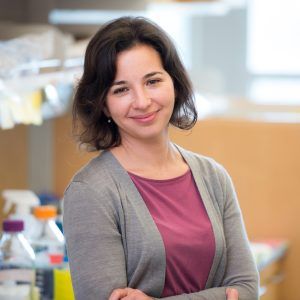
May 07, 2024
Anna V. Molofsky, M.D., Ph.D. (Trainee Hosts: Daniel Gray / Megan Chappell)Samuel Barondes Professor of Neurobiology and Psychiatry
Department of Psychiatry and Behavioral Sciences
University of California, San Francisco
Weill Institute for Neurosciences
“Cytokine Regulation of Brain Development and Plasticity”
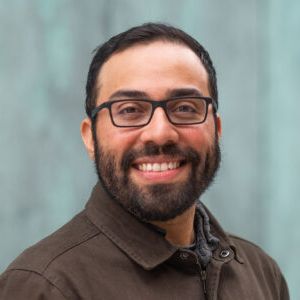
May 14, 2024
Steve Ramirez, Ph.D. (Faculty Host: Michael Wells)Department of Psychological and Brain Sciences, Boston University
“From Moments to Engrams: Artificially Manipulating Memories in Healthy and Pathological States”

May 21, 2024
New Member Short Talks pt. 1
Faculty Host: BRI Director
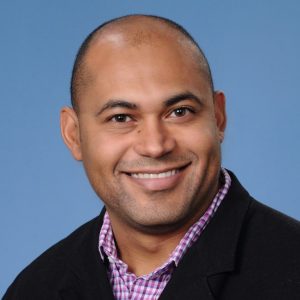
May 28, 2024
Roy Sillitoe, Ph.D. (Faculty Host: Paul Mathews)Department of Neuroscience, Baylor College of Medicine
“Genetic Dissection of Cerebellar Function by Generating Mice with Disease-like Phenotypes”
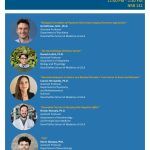
June 04, 2024
New Member Short Talks pt. 2
Faculty Hosts: Gina Poe, Ph.D.
ACADEMIC YEAR 2022-2023
FALL 2022
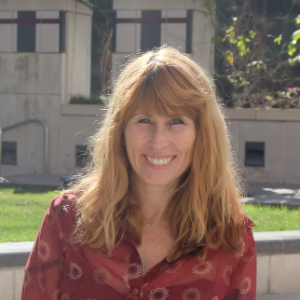
September 22, 2022
33rd Annual H.W. Magoun Distinguished Lecture
Carrie Bearden, Ph.D. (Faculty Host: Felix Schweizer)Department of Psychiatry and Biobehavioral Sciences, University of California – Los Angeles
“The 22q11.2 Locus as a Window into Disrupted Neurodevelopment”
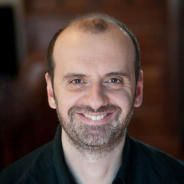
October 11, 2022
Dritan Agalliu, Ph.D. (Faculty Hosts: Bennett Novitch & Ahmet Arac)Department of Neurology, Columbia University
“Mechanisms of Blood-Brain Barrier Development, Breakdown and Repair in the Central Nervous System”
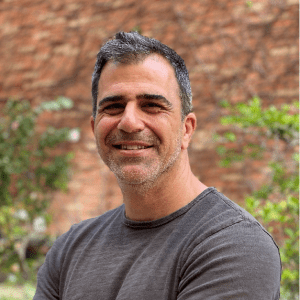
October 18, 2022
33rd Annual H.W. Magoun Distinguished Lecture
Joshua Trachtenberg, Ph.D. (Faculty Host: Felix Schweizer)Department of Neurobiology, University of California – Los Angeles
“The Evolution and Development of Experience-Dependent Cortical Plasticity in Early Postnatal Life”
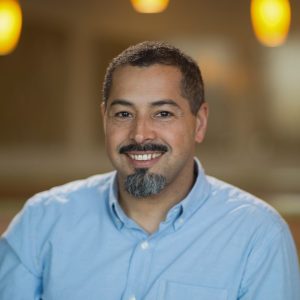
October 25, 2022
Gregorio Valdez, Ph.D. (Faculty Host: Lindsay De Biase)Department of Molecular Biology, Cell Biology, & Biochemistry, Columbia University
“Discovering the Cellular and Molecular Drivers of Spinal Motor Circuits Degeneration During Aging”

November 01, 2022
Mimi Liljeholm, Ph.D. (Faculty Host: Kate Wassum)Department of Cognitive Sciences, University of California – Irvine
“The Value of Control”
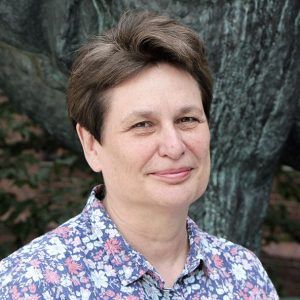
November 29, 2022
CANCELLED
33rd Annual Neuroscience Poster Session Distinguished Lecture
Catherine Dulac, Ph.D. (Faculty Host: Stephanie Correa)Department of Molecular & Cellular Biology, Harvard University
“Neurobiology of Social and Sickness Behaviors”
WINTER 2023
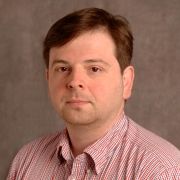
January 17, 2023
Attila Losonczy, M.D., Ph.D. (Faculty Host: Peyman Golshani)Department of Neuroscience, Columbia University – Zuckerman Institute
“Assembly and Functional Organization of Hippocampal Circuits for Navigation and Memory”
January 24, 2023
Arnold Scheibel Distinguished Postdoctoral Fellow in Neuroscience Lectures
Faculty Host: Felix Schweizer
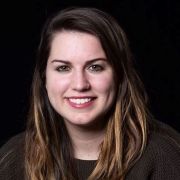
Jacqueline Giovanniello, Ph.D.Laboratory of Dr. Kate Wassum
Department of Psychology, University of California – Los Angeles
“Opposing Amygdala-Striatal Pathways Permit Chronic Stress to Promote Habit Formation”
Seminar Recording (UCLA Mednet login required)
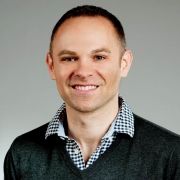
Matthias Stangl, Ph.D.Laboratory of Dr. Nanthia Suthana
Department of Psychiatry and Biobehavioral Sciences, David Geffen School of Medicine at UCLA
“Spatial Representations for Self and Others in the Medial Temporal Lobe of Freely-Moving Humans”
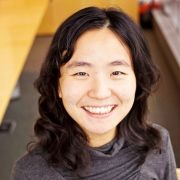
January 31, 2023
Dayu Lin, Ph.D. (Faculty Host: Weizhe Hong)Department of Psychiatry, New York University – Langone Medical Center
“Win to Fight and Lose to Flight: Neural Mechanisms Underlying Innate yet Flexible Social Behaviors”
Seminar Recording (UCLA Mednet login required)
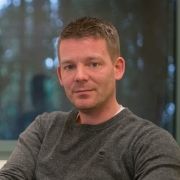
February 07, 2023
Stephan Lammel, Ph.D. (Faculty Host: Avishek Adhikari)Department of Molecular & Cell Biology, University of California – Berkeley
“Exploring Neural Dynamics in Reward Learning and Motivated Behavior”
Seminar Recording (UCLA Mednet login required)
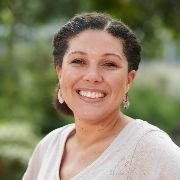
February 14, 2023
2nd Annual Black History Month Special Lecture
Kacie Deters, Ph.D. (Faculty Host: Gina Poe)Department of Integrative Biology and Physiology, University of California – Los Angeles
“Examination of ‘Well-Established’ Risk Factors for Cognitive Decline and Dementia in the Black Community”

February 21, 2023
Xinyu Zhao, Ph.D. (Faculty Host: Carlos Portera-Cailliau & Bennett Novitch)Department of Neuroscience, University of Wisconsin – Madison
“From Mice to Humans and Back: Using Multimodal Approaches to Interrogate Critical Genes for Brain Development”
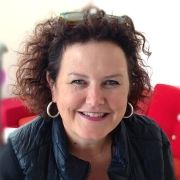
February 28, 2023
Integrative Center for Learning and Memory (ICLM) Distinguished Lecture
Erin Schuman, Ph.D. (Faculty Host: Dean Buonomano and ICLM)Department of Synaptic Plasticity, Max Planck Institute for Brain Research
“The mRNAs and Proteins of Neuronal Synapses”
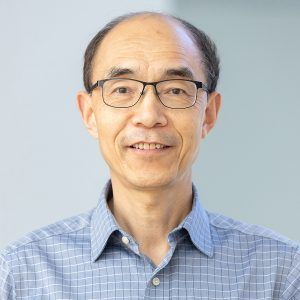
March 14, 2023
Guoping Feng, Ph.D. (Faculty Host: Michael Wells)
Department of Brain and Cognitive Sciences, Massachusetts Institute of Technology
“Dissecting Neurobiological Mechanisms of ASD: From Genes to Circuits”
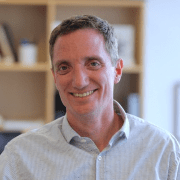
March 21, 2023
Mark Churchland, Ph.D. (Faculty Host: Ahmet Arac)
Department of Neuroscience, Columbia University – Zuckerman Institute
“From Spikes to Factors: Understanding Large-Scale Neural Computations”
Seminar Recording (UCLA Mednet login required)
SPRING 2023
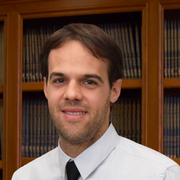
April 04, 2023
Fabricio Do Monte, D.V.M., Ph.D. (Faculty Host: Avishek Adhikari)Department of Neurobiology and Anatomy, University of Texas Health Science Center at Houston
“Corticothalamic Circuits Regulating Approach-Avoidance Conflict”
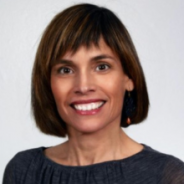
April 18, 2023
Cecilia Flores, Ph.D. (Faculty Host: Laura DeNardo)Departments of Psychiatry and Neurology & Neurosurgery, McGill University
“Molecular Mediators and Markers of Psychiatric Risk in Adolescence”
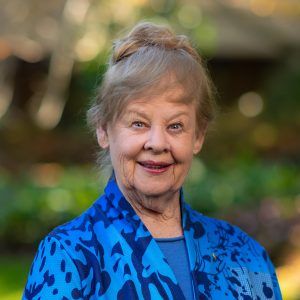
April 25, 2023
26th Annual Charles H. Sawyer Distinguished Lecture
Jennifer Marshall Graves, Ph.D. (Faculty Host: Paul Micevych and Laboratory of Neuroendocrinology)La Trobe Institute for Molecular Science, La Trobe University, Australia
“Sex, Genes, and Chromosomes, and the Future of Men”
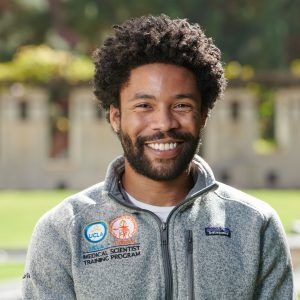
Jay Gill
Laboratory of Dr. Nanthia SuthanaDepartment of Psychiatry and Biobehavioral Science, David Geffen School of Medicine at UCLA
Laboratory of Dr. Jonathan Kao
Department of Electrical Engineering, Henry Samueli School of Engineering at UCLA
“Characterizing Intracranial Amygdala Oscillations during Aversive Experiences in Humans with and without Treatment-Resistant Post Traumatic Stress Disorder”
Seminar Recording (UCLA Mednet login required)
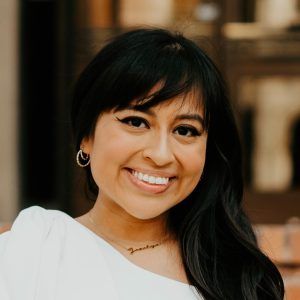
Joselyn Soto
Laboratory of Dr. Baljit KhakhDepartments of Physiology and Neurobiology, David Geffen School of Medicine at UCLA
“Astrocyte and Neuron Subproteomes Reveal Cell-Specific Contributions to Obsessive-Compulsive Disorder Behaviors”
Seminar Recording (UCLA Mednet login required)
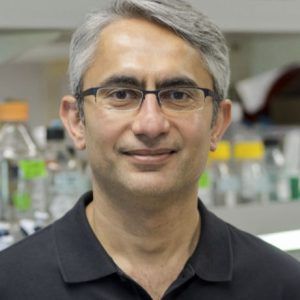
May 09, 2023
Nirao Shah, Ph.D. (Faculty Host: Weizhe Hong)Department of Neurobiology, Stanford University
“Neural Circuits for Sexually Dimorphic Innate Social Behaviors”
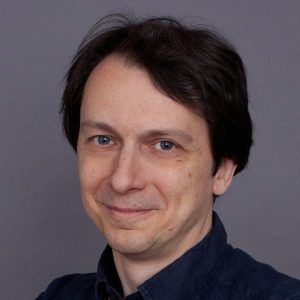
May 16, 2023
Stefano Fusi, Ph.D. (Faculty Host: Dean Buonomano)Department of Neuroscience, Columbia University
“The Pervasiveness of Disentangled Representational Geometries in the Brain”

May 23, 2023
Terri Wood, Ph.D. (Faculty Host: Ye Zhang)Department of Pharmacology, Physiology, and Neuroscience, Rutgers University
“mTOR Signaling and Cholesterol Biosynthesis Define Oligodendroglial Heterogeneity between Brain and Spinal Cord”
Seminar Recording (UCLA Mednet login required)
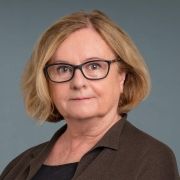
May 30, 2023
Regina Sullivan, Ph.D. (Faculty Host: Laura DeNardo)Department of Child and Adolescent Psychiatry, New York University – Langone Medical Center
“Infant Neurobehavioral Response to the Attachment Figure”
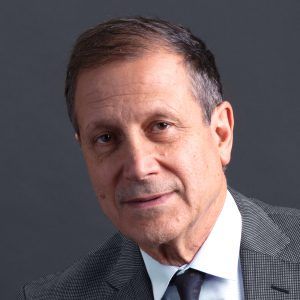
June 06, 2023
34th Annual H.W. Magoun Distinguished Lecture
Itzhak Fried, M.D., Ph.D.Professor
Departments of Neurosurgery and Psychiatry & Biobehavioral Sciences
David Geffen School of Medicine at UCLA
Faculty Host: Felix Schweizer
“Memory Aid for the Human Brain: From Single Neurons to Neuromodulation”
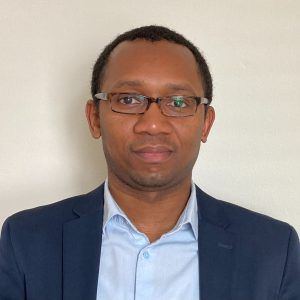
Fayal Abderemane-Ali, Ph.D.Assistant Professor
Department of Physiology
David Geffen School of Medicine at UCLA
“Neurotoxin Survival in Chemical Defense and Ion Channel Complexes in Brain Health and Disease”
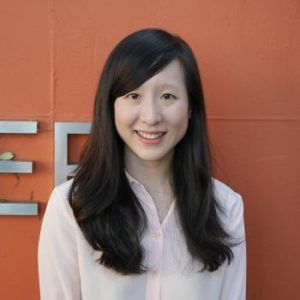
Tiffany Ho, Ph.D.Assistant Professor
Department of Psychology
UCLA College of Life Sciences
“The Roles of Inflammation and Glutamate in Understanding Adolescent Stress and Depression”
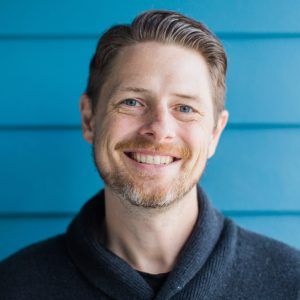
Scott Wilke, M.D., Ph.D.Assistant Professor
Department of Psychiatry & Biobehavioral Sciences
David Geffen School of Medicine at UCLA
Title TBD
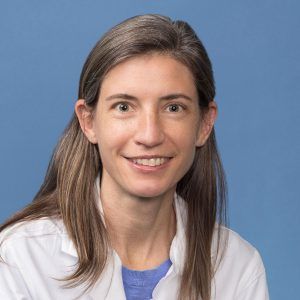
Katy Cross, M.D., Ph.D.Assistant Professor
Department of Neurology
David Geffen School of Medicine at UCLA
“Electrophysiology of Action and Gait in Movement Disorders”
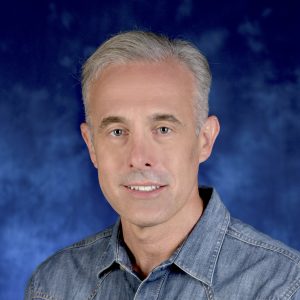
Alex Huk, Ph.D.Director, Fuster Laboratory for Cognitive Neuroscience
Professor-in-Residence, Departments of Psychiatry & Biobehavioral Sciences and Ophthalmology
David Geffen School of Medicine at UCLA
“Neural Basis of Perception and Cognition in the Primate Brain”
Fall 2021
Due to COVID-19 safety precautions, we are offering a hybrid model to allow attendees to join virtually or in-person. Please note that the event type is displayed under the date for each seminar.
Missed a JSN? It might be on our youtube channel: https://www.youtube.com/channel/UC9mWmo5Kj0S0DErM17BXUoQ
October 12, 2021
Seminar Recording
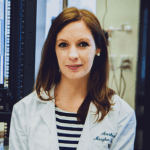
Meaghan Creed, Ph.D. (Faculty Host: Laura DeNardo)
Departments of Anesthesiology, Psychiatry, Neuroscience and Biomedical Engineering, Washington University School of Medicine
“Non-Canonical Ventral Pallidal Circuits and their Relevance for Treating Addiction”
Abstract
The ventral pallidum is critical for assessing hedonic value of reward and encoding motivational drive. Classically, the VP is considered an inhibitory ‘relay’ between the nucleus accumbens and midbrain structures. Our work challenges this model of information flow in the basal ganglia. We characterize two non-canonical populations of ventral pallidal neurons: 1) ventral pallidal glutamatergic neurons which follow canonical output pathways, but exert opposing excitatory drive on downstream structures, and 2) arkypallidal neurons, which robustly innervate and inhibit the nucleus accumbens in a value-dependent manner. These populations are critical for constraining reward seeking in the face of aversive consequences, and encoding reward palatability to promote consumption, respectively. We discuss how adaptations in these pathways may contribute to symptoms of impaired reward processing in the context of substance use disorders, and how harnessing this cellular heterogeneity may lead to cell-type specific neuromodulation therapies for these disorders.
October 19, 2021
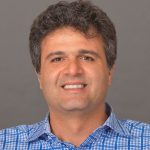
The Brain Research Institute 32nd Annual H.W. Magoun Lecture
Peyman Golshani, M.D, Ph.D. (Faculty Host: Felix Schweizer)
Departments of Neurology and Psychiatry
David Geffen School of Medicine at UCLA
“Neural Network Dynamics Driving Arousal, Attention, and Memory”
Abstract
Neurodevelopmental disorders and neuropsychiatric disorders are associated with impairments of arousal, attention and memory. The specific circuit dynamics driving these behavioral and cognitive deficits are poorly understood. I will review several of our studies which dissect the mechanisms driving coordinated firing of identified neurons driving arousal, attention and memory and probe how these dynamics become corrupted in models of disease. I will review work on the neuromodulatory inputs driving cortical gain change in visual cortex during arousal and how slow sub threshold oscillations can dampen responses. I will also review work showing impaired slow oscillatory entrainment of prefrontal cortical neurons in a model of autism and epilepsy driven by prominent synaptic loss, and deterioration of social representations in the model. I will show how synchronized entrainment of interneurons to oscillations is dramatically impaired in a model of temporal lobe epilepsy, leading to severe instability of spatial coding and cognitive deficits. I will review some of our latest work on hippocampal and cortical representations of working working memory, the emergence of memory representations with learning and representational drift across days. I will end by discussing some of the open-source tools developed by our UCLA Miniscope community that have now been disseminated to hundreds of labs.
November 2, 2021
Seminar Recording
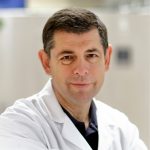
Markus Heilig, M.D., Ph.D. (Faculty Host: Lara Ray)
Department of Psychiatry, Linköping University, Linköping, Sweden
“Neurobiological Mechanisms of Individual Vulnerability to Alcohol Addiction-like Behaviors”
Abstract
Neurobiological research on alcohol addiction har grown, but no mechanistically novel medications have been approved in >15 years. Promising candidates have failed in development. What have we been missing?
Three themes have emerged from our attempts to address this question. First, studying neurobiological mechanism in animal models at a group level may be unable to capture mechanisms that render a vulnerable minority of alcohol users prone to disease. Second, patients with alcohol addiction progressively choose alcohol over healthy rewards. The underlying mechanisms may be difficult to identify in animal models that use alcohol as the only reinforcer. Third, in patients, alcohol use continues despite adverse consequences, yet in commonly used animal models, self-administration only results in delivery of the reinforcer.
Through a series of papers, these themes converge to a story, with the amygdala, and its GABA-ergic microcircuitry as key players.
November 16, 2022
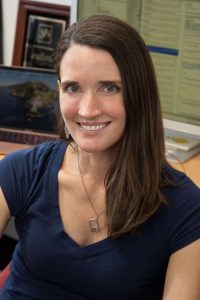
The Arnold Scheibel Endowed Chair
Anne Churchland, Ph.D. (Faculty Host: Felix Schweizer)
Department of Neurobiology, David Geffen School of Medicine at UCLA
“Pyramidal Cell Types Drive Functionally Distinct Cortical Activity Patterns During Decision-Making”
Abstract
Understanding how cortical circuits generate complex behavior requires investigating the cell types that comprise them. Functional differences across pyramidal neuron (PyN) types have been observed in a few individual areas, but it is not known whether these mesoscale differences are mirrored in other cortical areas, nor whether other differences emerge when larger-scale dynamics are considered. We targeted pyramidal tract (PT), intratelencephalic (IT) and corticostriatal projection neurons. Cortex-wide measurements revealed that PyN types drive unique macro- and mesoscale patterns. Within-area measurements and inactivations revealed distinct functional roles: all PyNs in parietal cortex were recruited during sensory processing and, surprisingly, PT neurons were most important for perception. Our results reveal that rich, cell-type-specific dynamics shape perceptual decisions.
November 23, 2021
Seminar Recording
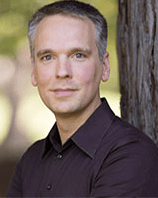
Andre Berndt, Ph.D. (Faculty Host: Avishek Adhikari)
Departments of Bioengineering and Develops Molecular
“Massively Parallel, High-Throughput Engineering of Optogenetic Biosensors for Neuronal Signaling”
Abstract
Genetically encoded sensors, combined with in vivo microscopy and fiber photometry, have revolutionized the access to and dissection of neuronal circuits. We developed a novel high-throughput screening platform that significantly accelerates the engineering of optogenetic sensor proteins. We can now screen extensive variant libraries in short timescales under relevant physiological conditions. Here, I will showcase the rapid development of sensors for dopamine, and opioids, which have been validated in cell cultures, and in vivo. In summary, we can develop sensors fast and at a low cost which enables us to adopt them from the whiteboard to neuroscience applications more quickly.
November 30, 2021
Seminar Recording
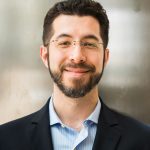
The Brain Research Institute 32nd Annual Neuroscience Poster Session Distinguished Lecture
Ed Boyden, Ph.D. (Faculty Host: Felix Schweizer)
Departments of Neurotechnology, Brain and Cognitive Sciences, Media Arts and Sciences, and Biological Engineering, Massachusetts Institute of Technology
“Tools for Analyzing and Repairing the Brain”
Abstract
Understanding and repairing the brain requires technologies for systematically observing and controlling the brain with precision. We are discovering new molecular principles that enable such technologies. We discovered that one can physically magnify biological specimens by synthesizing dense networks of swellable polymer throughout them, and then chemically processing the specimens to isotropically swell them. This method, which we call expansion microscopy, enables ordinary microscopes to do nanoimaging – important for mapping the brain across scales. As a second example, we discovered that microbial opsins, genetically expressed in neurons, could enable their electrical activities to be precisely controlled in response to light. Finally, we are developing, using new strategies such as robotic directed evolution, fluorescent reporters that enable the precision measurement of signals such as voltage and calcium, as well as new strategies that enable many sensors to be used at once in the same cell. We share all these tools freely, and aim to integrate the use of these tools so as to enable comprehensive understandings of neural circuits.
Winter 2022
January 11, 2022
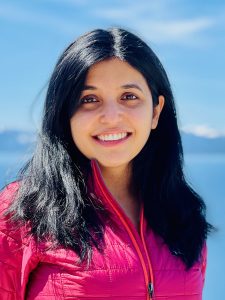 Seminar Recording
Seminar Recording
The Arnold Scheibel Distinguished Postdoctoral Fellow in Neuroscience Lecture
Megha Sehgal, Ph.D. (Faculty Host: Felix Schweizer)
Laboratory of Dr. Alcino Silva, Departments of Neurobiology, Psychiatry and Psychology at UCLA
“Co-Allocation to Overlapping Dendritic Branches in the Retrosplenial Cortex Integrates Memories Across Time”
Abstract
Events occurring close in time are often linked in memory, providing an episodic timeline and a framework for those memories. Recent studies suggest that memories acquired close in time are encoded by overlapping neuronal ensembles, but whether dendritic plasticity plays a role in linking memories is unknown. Using activity-dependent labeling and manipulation, as well as longitudinal one- and two-photon imaging of RSC somatic and dendritic compartments, we show that memory linking is not only dependent on ensemble overlap in the retrosplenial cortex, but also on branch-specific dendritic allocation mechanisms. These results demonstrate a causal role for dendritic mechanisms in memory integration and reveal a novel set of rules that govern how linked, and independent memories are allocated to dendritic compartments.
January 18, 2022
Seminar Recording
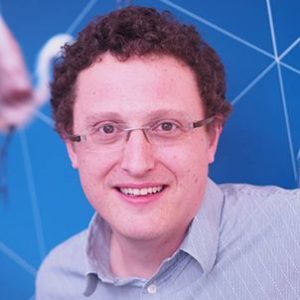
The Integrative Center for Learning and Memory Distinguished Lecturer
Timothy Behrens, Ph.D. (Faculty Host: Alcino Silva and ICLM)
Department of Computational Neuroscience, University of Oxford
“How Does The Brain Figure Out The Structure of Problems”
Abstract
The cellular representations and computations that allow rodents to navigate in space have been described with beautiful precision. In this talk, I will show that some of these same computations can be found in humans doing tasks that appear very different from spatial navigation. I will describe some theory that allows us to think about spatial and non-spatial problems in the same framework, and I will try to use this theory to give a new perspective on the beautiful spatial computations that inspired it. The overall goal of this work is to find a framework where we can talk about complicated non-spatial inference problems with the same precision that is only currently available in space.
January 25, 2022 (POSTPONED TO OCTOBER 25, 2022)
(Event Type: Hybrid)
In-Person: NRB Auditorium (635 Charles E Young Dr S, Los Angeles, CA 90095)
Seminar Registration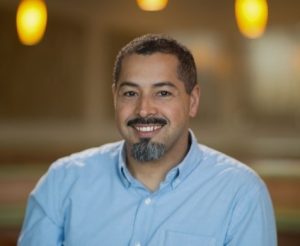
Gregorio Valdez, Ph.D. (Faculty Host: Lindsay De Biase)
Departments of Molecular Biology, Cell Biology and Biochemistry, Brown University
“Discovering The Cellular and Molecular Drivers of Spinal Motor Circuits Degeneration During Aging”
Abstract
In this seminar, we will dive into the cellular and molecular mechanisms that contribute to degeneration of spinal cord motor circuits. The primary focus will be on the relationship between motor neurons and microglia. I will show that while motor neurons do not die in old age, they preferentially shed excitatory synapses. I will then provide evidence suggesting roles for microglia in the loss of motor synapses in old age. I will finish by presenting data indicating that motor neurons are culprit, partly due to dysregulated expression of ApoE, Trem2 and C1q, in the deleterious actions of aged microglia.
February 1, 2022
(Event Type: Virtual)
Seminar Registration
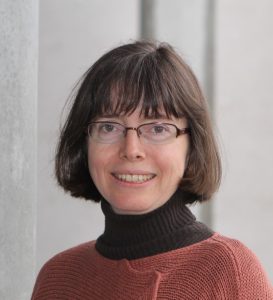
Prof. Dr. Fiona Doetsch (Faculty Host: Ye Zhang)
The Center for Molecular Life Sciences, Biozentrum, University of Basel, Switzerland
“Regulation and Diversity of Adult Neural Stem Cells”
Abstract
Neural stem cells reside in the adult mammalian brain. The ventricular-subventricular zone (V-SVZ) gives rise to olfactory bulb neurons, as well as small numbers of glia throughout life. Adult V-SVZ neural stem cells dynamically integrate intrinsic and extrinsic signals to either maintain the quiescent state or to become activated to divide and generate progeny. I will present our recent findings highlighting adult neural stem cell heterogeneity, including the identification of novel gliogenic domains and cell types, and the key roles of physiological state and long-range signals in the regulation of regionally distinct pools of adult neural stem cells.
February 8, 2022
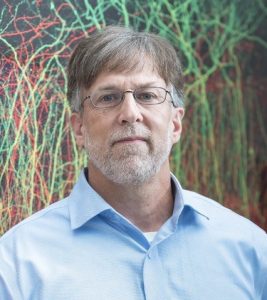
Jeffrey Magee, Ph.D. (Faculty Host: Lindsay De Biase)
Department of Neuroscience, Baylor College of Medicine
“Entorhinal Cortex Directs Learning-Related Changes in CA1 Representations”
Abstract
Learning related changes in brain activity are thought to underlie adaptive behaviors. How these changes occur remains unknown. We recorded population activity from hippocampal area CA1 and entorhinal cortex layer 3 (EC3) as mice learned a reward location on a linear treadmill. The recordings, along with pharmacological and optogenetic manipulations, indicate that learning related changes in the hippocampus are produced by behavioral time-scale synaptic plasticity (BTSP) and that an instructive signal from the EC directs this plasticity. In addition, the instructive signal appears to be specifically adapted to the behaviorally relevant features of the environment.
February 15, 2022 (POSTPONED TO OCTOBER 11, 2022)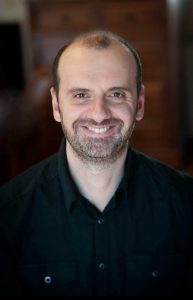
(Event Type: Virtual)
Seminar Registration
Dritan Agalliu, Ph.D. (Faculty Host: Bennett Novitch)
Departments of Pathology and Cell Biology, Columbia University
“Mechanisms of Blood-Brain Barrier Development, Breakdown and Repair in the Central Nervous System”
Abstract
Brain endothelial cells form a paracellular and transcellular barrier to blood-borne solutes via tight junctions and scarce endocytotic vesicles. The blood-brain barrier (BBB) plays a pivotal role in the healthy and diseased central nervous system (CNS). BBB damage contributes to increased CNS influx of serum proteins and immune cells, leading to severe pathological and neurological deficits in both ischemic stroke and multiple sclerosis; yet the cell biological mechanisms of how the paracellular BBB dysfunction occurs in these neurological disorders are not very well understood. Dr. Agalliu will present the latest research studies from his laboratory that address the cell biological mechanisms of blood-brain barrier development in the healthy CNS and blood-brain barrier dysfunction in neurological diseases such as ischemic stroke and neuroinflammation.
Black History Month Lecture
February 15, 2022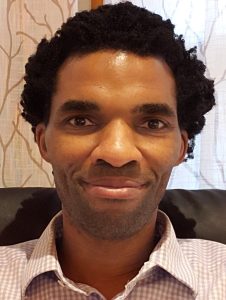
Seminar Recording
Hakeem O. Lawal, Ph.D. (Faculty Host: Ketema Paul)
Department of Biological Sciences, College of Agriculture, Science and Technology, Delaware State University
“All In The Head: Synaptic Neurotransmission Relevant to Aging and Parkinson’s Disease”
Abstract
Cholinergic and dopaminergic neurotransmitter systems regulate an array of critical organismal functions including locomotion, muscular contraction, cognition, vision, and attention. Despite the wealth of knowledge about the component presynaptic regulatory pathways in these systems, much remains unknown, including the precise manner through which regulated neurotransmitter release occurs in specific circuits. Our lab uses vesicular transporters for dopamine and acetylcholine in the fruit fly to understand the mechanisms of synaptic release and their relevance to aging and neurological disorders like Parkinson’s disease.
February 22, 2022 (POSTPONED TO FEBRUARY 28, 2023)
(Event Type: Hybrid)
In-Person: NRB Auditorium (635 Charles E Young Dr S, Los Angeles, CA 90095)
Seminar Registration
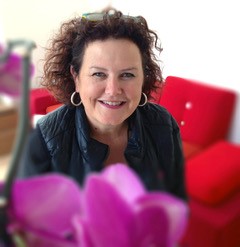
The Integrative Center for Learning and Memory Distinguished Lecturer
Prof. Dr. Erin Schuman (Faculty Host: Dean Buonomano and ICLM)
Department of Synaptic Plasticity, Max Planck Institute for Brain Research, Frankfurt, Germany
“Protein Synthesis at Neuronal Synapses”
Abstract
The complex morphology of neurons, with synapses located hundreds of microns from the cell body, necessitates the localization of important cell biological machines, including ribosomes, within dendrites and axons. Local translation of mRNAs is important for the function and plasticity of synapses. Using advanced sequencing and imaging techniques we have updated our understanding of the local transcriptome and identified the local translatome- identifying over 800 transcripts for which local translation is the dominant source of protein. In addition, we have explored the unique mechanisms neurons use to meet protein demands at synapses, identifying surprising features of neuronal and synaptic protein synthesis.
March 1, 2022
Seminar Recording
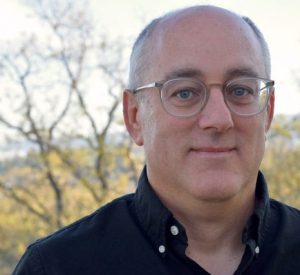
Scott Baraban, Ph.D. (Faculty Host: Peyman Golshani)
Department of Neurological Surgery, University of California, San Francisco
“An Interneuron-Based Approach to Epilepsy Therapy”
Abstract
Cell transplantation into the CNS shows great promise for treatment of neurological disease. In preclinical genetic and acquired epilepsy models, we demonstrated that GABA progenitor cell transplantation suppressed seizures and improved co-morbidities. These findings, using murine embryonic progenitor cells from the medial ganglionic eminence (MGE), are consistent with enhancement of GABA-mediated inhibition via generation of new interneurons. Because epilepsy is a network disorder, translation requires a more complete understanding of MGE-derived interneuron integration. To successfully scale to larger species, it will also be necessary to identify a non-rodent source of progenitor cells. Here I will discuss these issues.
Spring 2022
March 29, 2022 (Event Type: Hybrid)
In-Person: NRB Auditorium (635 Charles E Young Dr S, Los Angeles, CA 90095)
Seminar Registration
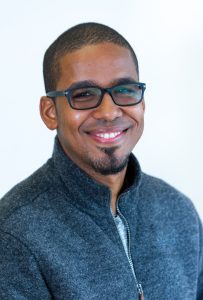
Mario Penzo, Ph.D. (Faculty Host: Kate Wassum)
Unit of the Neurobiology of Affective Memory, National Institute of Mental Health
“The Role of the Paraventricular Nucleus of the Thalamus in Fear”
Abstract
Fear learning is associated with the expression of defensive behaviors upon fear memory retrieval. In rodents, these behaviors range from reactions such as freezing, to instrumental responses like active avoidance. Notably, while decades of research on Pavlovian conditioning have yielded profound knowledge of the brain mechanisms that regulate conditioned freezing behavior, the processes that shape active avoidance behavior are far less understood. During my presentation, I will discuss recent work from our group demonstrating that the paraventricular nucleus of the thalamus (PVT) – a midline thalamic structure previously linked to fear processing – is critical for the expression of active avoidance behavior. Currently, we are investigating how cortical and subcortical inputs to the PVT regulate avoidance behavior.
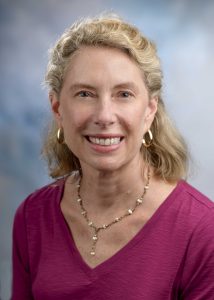
April 5, 2022 (Event Type: Hybrid)
In-Person: NRB Auditorium (635 Charles E Young Dr S, Los Angeles, CA 90095)
Seminar Registration
Charles H. (Tom) Sawyer Distinguished Lecture
Nancy Forger, Ph.D. (Faculty Host: Paul Micevych and LNE)
Departments of Neuroscience, Georgia State University
“Birth and The Brain”
Abstract
Most mammals enter the world in a fairly dramatic fashion. Until the advent of Cesarean sections, all eutherian mammals arrived via a vaginal birth, which is accompanied by marked hormonal changes, mechanical stimuli associated with labor and delivery, and a transition from the sterile environment of the womb to one teeming with microorganisms. This seminar will address how the brain responds to parturition and the transition to life ex utero. In particular, I will present our recent findings on the ways in which birth mode, birth timing and microbiota exposure affect the neonatal brain.
April 12, 2022 (Event Type: Hybrid)
In-Person: NRB Auditorium (635 Charles E Young Dr S, Los Angeles, CA 90095)
Seminar Registration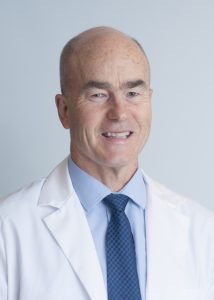
Kevin Staley, M.D. (Faculty Host: Peyman Golshani)
Pediatric Neurology Division, Massachusetts General Hospital, Harvard Medical School
“Plumbing the Brain’s Response to Injury: New approaches to Cytotoxic Cerebral Edema and Post-Traumatic Epilepsy”
Abstract
Controversies persist regarding the neuronal distribution of ions such as chloride that underlie synaptic inhibition. And clinical disorders of ion and water distribution, such as seizures and cytotoxic cerebral edema after brain injury, remain largely untreatable. Fortunately, new high-resolution microscopic techniques have enabled the mapping of the distribution of ions in the intra- and extracellular spaces of the brain, and the changes that occur after injury. This talk will describe findings ranging from unpublished data to the results of a recently published bench-to-bedside Phase II trial of ion transport inhibition for the treatment of neonatal seizures.
April 26, 2022 (Event Type: Hybrid)
In-Person: NRB Auditorium (635 Charles E Young Dr S, Los Angeles, CA 90095)
Seminar Registration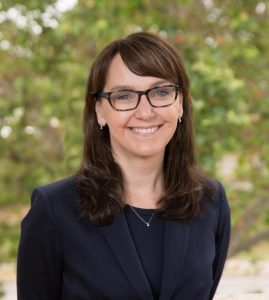
Kimberley McAllister, Ph.D. (Faculty Host: Carlos Portera-Cailliau)
Departments of Neurobiology, Physiology and Behavior, University of California, Davis
“Novel Roles for Neural-Immune Crosstalk During Development and in Disease”
Abstract
Immune-related genes and immune responses to environmental stimuli have been implicated in autism spectrum disorder (ASD) and schizophrenia (SZ), and maternal infection during early gestation, in particular, is a clear risk factor. Animal models have strengthened the link between maternal immune activation (MIA) and these disorders, converging on the hypothesis that immune dysregulation from genetic or environmental risk factors alters immune molecules in the brain, leading to changes in synaptic connectivity and to disease-related behaviors in offspring. Here, I will review recent results supporting this hypothesis and present new data identifying molecular pathways that may initiate the disease process prenatally following MIA to cause changes in cortical development in offspring.
May 3, 2022 (Event Type: Hybrid)
In-Person: NRB Auditorium (635 Charles E Young Dr S, Los Angeles, CA 90095)
Seminar Registration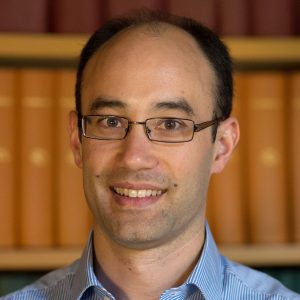
David Dupret, Ph.D. (Faculty Host: Melissa Sharpe)
MRC Brain Network Dynamics Unit, University of Oxford
“In Space and Time: Network Dynamics of a Memory Representation”
Abstract
Memories shape everyday behaviour, typically informing adaptive responses but sometimes driving maladaptive ones. These memory-guided behaviours engage complex patterns of neuronal activity in distributed brain’s networks, including the hippocampus and its directly connected circuits. What features of neural activity underlie memory-guided behaviour?
By considering spatio-temporally organised spike discharges and rhythmic fluctuations of the local field potentials, I will discuss in this talk recent findings that describe population-level patterns of activity supporting hippocampal information processing with relevance to memory. Notably, I will present cell-type-selective and input-defined interventions that allow drawing causal involvement of neural mechanisms at the nexus of brain and behaviour, or preventing the expression of unwanted memories for rebalancing behavioural responses. Altogether, these data will highlight how fine-grained neural dynamics in the hippocampus and connected circuits promote memory-guided behaviour, for better or worse.
May 10, 2022 (Event Type: Hybrid)
In-Person: NRB Auditorium (635 Charles E Young Dr S, Los Angeles, CA 90095)
Seminar Registration
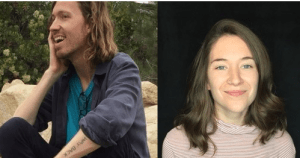
The Brain Research Institute 30th Annual Samuel Eiduson Student Lecture
Peter Schuette (Faculty Host: Felix Schweizer)
Laboratories of Drs. Avishek Adhikari, Department of Psychology and Jonathan Kao, Department of Engineering, UCLA
“Coordination of Escape Circuits Orchestrates Versatile Fight From Multimodal Threats”
-AND-
Ana Sias (Faculty Host: Felix Schweizer)
Laboratory of Dr. Kate Wassum, Department of Psychology, UCLA
“Basolateral Amygdala Circuits are Neural Substrates for Outcome-Specific Reward Memories”
Abstract
Peter Schuette: Naturalistic escape requires versatile context-specific flight with rapid evaluation of local geometry to identify and use efficient escape routes. It is unknown how spatial navigation and escape circuits are recruited to produce context-specific flight. Using mice, we show activity in cholecystokinin-expressing hypothalamic dorsal premammillary cells (PMd-cck) is sufficient and necessary for context-specific escape that adapts to each environment’s layout. Contrastingly, numerous other nuclei implicated in flight only induced stereotyped panic-related escape. We reasoned the PMd can induce context-specific escape because it projects to both escape and spatial navigation nuclei. Indeed, activity in PMd-cck projections to thalamic spatial navigation circuits are only necessary for context-specific escape induced by moderate threats, but not panic-related stereotyped escape caused by perceived asphyxiation. Conversely, the PMd projection to the escape-inducing dorsal periaqueductal gray projection is necessary for all escapes tested. Thus, PMd-cck controls versatile flight, engaging spatial navigation and escape circuits.
Ana Sias: To make adaptive decisions, we often use cues in our environment to retrieve detailed memories of associated rewards and choose accordingly. Using optical imaging and manipulation methods coupled with Pavlovian cue-reward conditioning and a translationally relevant decision-making task, we reveal the basolateral amygdala (BLA) to be a central hub for outcome-specific associative memories that enable adaptive choice. In this presentation I will expose neural circuitry that supports the BLA in the encoding and subsequent retrieval of these memories to inform decision making.
May 17, 2022 (Event Type: Hybrid)
In-Person: NRB Auditorium (635 Charles E Young Dr S, Los Angeles, CA 90095)
Seminar Registration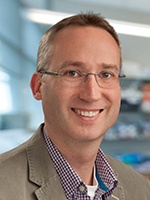
Axel Nimmerjahn, Ph.D. (Faculty Host: Ahmet Arac)
Waitt Advanced Biophotonics Center, Salk Institute for Biological Studies
“Neuron-Astrocyte Communication in Sensorimotor Processing and Behavior”
Abstract
Astrocytes play pivotal roles in neural circuit operation and adaptation in health and disease. Nevertheless, precisely how astrocytes integrate diverse neuronal signals, modulate neural circuit structure and function at multiple temporal and spatial scales, and influence animal behavior or disease through aberrant excitation and molecular output remains unclear. This presentation will discuss how new and state-of-the-art imaging approaches, fluorescence indicators, genetic targeting tools, quantitative behavioral assays, and computational methods may help resolve these longstanding questions. It will also address complicating factors in interpreting astrocytes’ role in neural circuit regulation and animal behavior, such as their heterogeneity and inter-glial communication.
May 24, 2022 (Event Type: Hybrid)
In-Person: NRB Auditorium (635 Charles E Young Dr S, Los Angeles, CA 90095)
Seminar Registration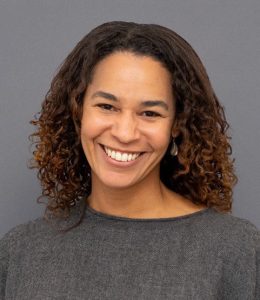
Catherine Hartley, Ph.D. (Faculty Host: Jennifer Silvers)
Departments of Psychology and Neural Science, New York University
“Developing Behavioral Flexibility”
Abstract
Throughout our lives, we rapidly acquire knowledge through experience. This knowledge is structured — it reflects regularities in our environments such as sequential relations between events, contingencies between actions and outcomes, and similarities across contexts. Across development, we exploit this structure to support the flexible pursuit of valued outcomes. In this talk, I will present studies examining at the cognitive, neural, and computational levels how the learning, memory, and decision-making processes that support or constrain adaptive behavioral flexibility change over the course of development from childhood to adulthood. I will show that development confers marked changes in the cognitive representations engaged during learning and discuss how these changes may optimize behavior for an individual’s developmental stage.
May 31, 2022
In-Person: NRB Auditorium (635 Charles E Young Dr S, Los Angeles, CA 90095)
Seminar Registration

The Brain Research Institute 33rd Annual H.W. Magoun Lecture
Joshua Trachtenberg, Ph.D. (Faculty Host: Felix Schweizer)
Department of Neurobiology, David Geffen School of Medicine at UCLA
“The Evolution and Development of Experience-Dependent Cortical Plasticity in Early Postnatal Life”
Abstract
The neocortex is unique to mammals. During its development, the structure and function of neocortical circuitry is shaped by early sensorimotor experience, facilitating adaptive behavior to match the environment. The neocortex has exponentially expanded in primates, and much of this is due to a disproportionate expansion of upper cortical layers (layers 2/3). I would like to discuss work over the last 20 years at UCLA indicating that circuitry in layer 2/3 is so favored by evolution because it is unique in its ability to be instructed by the environment soon after its establishment and to then solidify this circuitry.
June 7, 2022
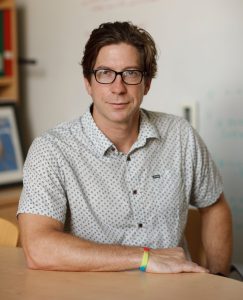 (Event Type: Hybrid)
(Event Type: Hybrid)
In-Person: NRB Auditorium (635 Charles E Young Dr S, Los Angeles, CA 90095)
Seminar Registration
Gavin Rumbaugh, Ph.D. (Faculty Host: Carlos Portera-Cailliau)
Department of Neuroscience, Scripps Research Institute, Scripps Florida
“Intersection of Autism Genetic Risk, Cortical Sensory Processing, and Adaptive Behaviors”
Abstract
Rare loss-of-function variants in a small subset of genes cause severe developmental encephalopathies that result in a convergent diagnosis of autism spectrum disorder, intellectual disability, and epilepsy within individual patients. When modeled in animals, these rare genetic variants are useful for discovery of neurodevelopmental processes essential for construction of brain systems subserving adaptative behaviors and balanced excitability. The talk will provide a comprehensive picture around efforts to understand how one of these genes, SYNGAP1/Syngap1, sculpts cortical circuits for sensory processing required for perceptive decision making and behavioral adaptations. Unpublished results will be presented that demonstrate that Syngap1 expression during development is required for the assembly of cortical circuitry that promotes tactile perception. Additional unpublished results will be presented that reveal novel cellular functions of Syngap1 explaining how it plays such an important role in somatosensory cortex development and function.
June 14, 2022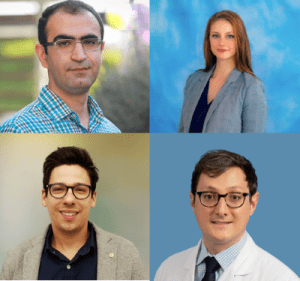
New Brain Research Institute Member Short Talks
(Event Type: Hybrid)
In-Person: NRB Auditorium (635 Charles E Young Dr S, Los Angeles, CA 90095)
Seminar Registration
Amjad Askary, Ph.D.
Assistant Professor
Department of Molecular, Cell and Developmental Biology, College of Life Sciences, University of California, Los Angeles
“Lineage and Cell Fate Determination in the Mammalian Retina”
Bridget Callaghan, Ph.D.
Assistant Professor
Department of Psychology, College of Life Sciences
University of California, Los Angeles
“Generational Impacts of Early Adversity on Children’s Mental and Physical Health”
Michael Wells, Ph.D.
Assistant Professor
Department of Human Genetics
David Geffen School of Medicine at UCLA
“Exploration of human genetic and phenotypic diversity through cell villages”
William Zeiger, M.D., Ph.D.
Assistant Professor-in-Residence
Department of Neurology, Movement Disorders Division
University of California, Los Angeles
“Neural Circuit Function & Dysfunction in Stroke and Parkinson Disease”
Abstract
TBA
Fall 2020
October 6, 2020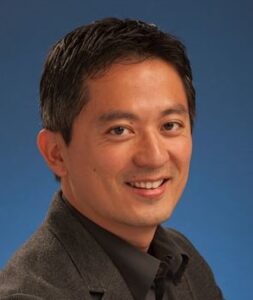
TAKAKI KOMIYAMA, Ph.D. (Faculty Host: Peyman Golshani)
Departments of Neurobiology and Neuroscience, University of California, San Diego
“Principles of Circuit Plasticity During Learning”
Abstract
One of the most remarkable features of the brain is its ability to change and learn from experience. Using motor learning as a platform, I will share our latest findings on how learning modifies brain circuits at the micro- and macro-scales.
October 20, 2020
Seminar Recording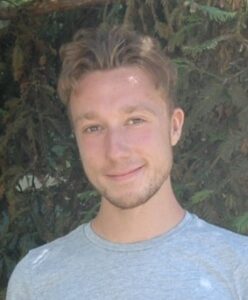
The Brain Research Institute 28th Annual Samuel Eiduson Student Lecture
LYLE KINGSBURY (Faculty Host: Felix Schweizer)
Laboratory of Dr. Weizhe Hong
Departments of Biological Chemistry and Neurobiology, David Geffen School of Medicine at UCLA
“The Social Brain in Action: Neural Dynamics Within and Across Interacting Animals”
Abstract
Social interaction is a fundamental feature of human and animal life and contributes substantially to our collective well-being. During interaction, individuals become coupled to one another as they act and react to each other’s decisions, and effective navigation of this process depends upon widespread neural systems in the brain. We investigated the role of the prefrontal cortex in encoding social information and shaping interactions through the control of social behavior. Using calcium imaging and optogenetic perturbations in mice, we investigated how cortical neurons represent sex-specific social cues and how these representations regulate male- and female-directed interaction. Simultaneous recordings during social interaction also revealed inter-individual synchronization of brain activity across animals, which predicts future interaction and the development of social relationships. These findings further our understanding of how the brain shapes social behavior and how the reciprocity of real time interaction is reflected in shared neural dynamics across individuals.
October 27, 2020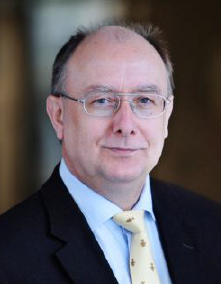
WIELAND HUTTNER, Ph.D. (Faculty Host: Ye Zhang)
Max Planck Institute of Molecular Cell Biology and Genetics
“Neural Stem Cell, Human-Specific Genes, and Neocortex Expansion in Development and Human Evolution”
Abstract
Two major classes of neural stem and progenitor cells (NPCs) in developing neocortex can be distinguished. First, NPCs that reside in the ventricular zone (VZ), i.e. neuroepithelial cells, apical (or ventricular) radial glia (aRG), and apical intermediate progenitors, collectively referred to as apical progenitors (APs). Second, NPCs that reside in the subventricular zone (SVZ), i.e. basal (or outer) radial glia (bRG) and basal intermediate progenitors, collectively referred to as basal progenitors (BPs). Neocortex expansion is thought to be linked to an increased abundance and proliferative capacity of BPs.
The following topics will be addressed.
1. The role of the human-specific gene ARHGAP11B in BP amplification.
2. The finding that the ability of ARHGAP11B to amplify BPs is based on a single C-to-G base substitution.
3. The ability of ARHGAP11B to expand the neocortex of a non-human primate, the common marmoset.
4. The localization of ARHGAP11B in mitochondria of NPCs and its action to promote glutaminolysis.
5. The increase in BP proliferative capacity due to the changes in their morphology in the course of neocortex evolution.
November 3, 2020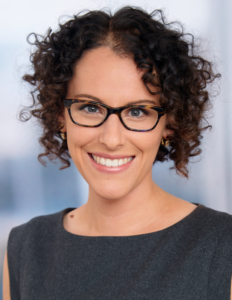
Seminar Recording
The Arnold Scheibel Distinguished Postdoctoral Fellow in Neuroscience Lecture (Faculty Host: Felix Schweizer)
ASTRA BRYANT, Ph.D.
Departments of Microbiology, Immunology, and Molecular Genetics, University of California, Los Angeles
“Neural Mechanisms Underlying Temperature-Driven Host Seeking by a Skin-Penetrating Human-Parasitic Nematode”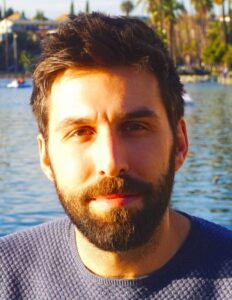
JIANNIS TAXIDIS, Ph.D.
Departments of Neurology and Psychiatry, University of California, Los Angeles
“Remembering What Happened When: Emergence and Stability of Context-Specific Hippocampal Sequences Encoding Odors and Time”
Abstract
Skin-penetrating parasitic nematodes are a major source of “diseases of disadvantage,” infecting approximately 1 billion people. Their life cycle includes an infective third-larval (iL3) stage that searches for hosts in a poorly understood process involving thermal cues. We measured temperature-driven behaviors in multiple parasitic-nematode species, including the human-parasitic threadworm Strongyloides stercoralis. We found that mammalian-parasitic iL3s are highly sensitive to thermal gradients. At temperatures above their cultivation temperature, iL3s display robust attraction to mammalian body temperatures (37°C). Temperature-driven responses are dominant in multisensory contexts; when below host body temperature, iL3s prioritize temperature-driven behaviors over chemosensory attraction to host odors.
We leveraged the genetic similarities between S. stercoralis and the free-living model nematode Caenorhabditis elegans to investigate mechanisms underlying temperature-driven host seeking. For C. elegans, thermotaxis behaviors within their physiological temperature range (~15-25°C) depend on the Ce-tax-4 gene, which encodes a cyclic nucleotide-gated channel subunit. We showed that targeted mutagenesis of Ss-tax-4 abolishes iL3 heat seeking, suggesting this behavior is generated through adaptations of conserved molecular cascades. In C. elegans, AFD sensory neurons provide the primary thermosensory drive for thermotaxis navigation. We genetically identified the S. stercoralis AFD neurons, and found that inducible silencing of these neurons suppresses iL3 heat seeking. Thus, AFD’s thermosensory role is conserved between S. stercoralis and C. elegans despite species-specific differences in thermal preference, behavior, and AFD dendritic structure. Using genetically encoded calcium sensors, we found that temperature-driven responses in Ss-AFD are distinct from those in Ce-AFD. Furthermore, at least two Ss-AFD-specific receptor guanylate cyclases confer sensitivity to temperature ranges that include mammalian body temperatures, compared to only one in C. elegans. Thus, altered thermal encoding in primary thermosensory neurons likely contributes to parasite-specific behaviors. Together, our results provide insight into the behavioral strategies, neural circuits, and molecular mechanisms that allow skin-penetrating nematodes to target hosts
How does the brain keep track of events we need to remember as well as the intervals between them? A recent model of hippocampal function posits that spiking sequences in hippocampal networks encode important sensory stimuli (external world) and link them by tiling the place or time between them (internal representations), forming memory maps of spatiotemporally related experiences. But does the hippocampus use one or multiple encoding strategies for external and internal representations? For example, do representations of sensory cues and time share the same stability, adaptability or relationship with learning? I will present our work that addresses this question. We used two-photon calcium imaging in vivo in CA1 of head-fixed mice. We tracked the activity of thousands of cells across days, while mice learned and performed an olfactory delayed non-match-to-sample task requiring working memory. We observed ‘odor-cells’, encoding specific olfactory cues, followed by ‘time-cells’ encoding delay timepoints after a specific odor. Despite forming continuous spiking sequences, the two neuronal groups exhibited strikingly different properties. Odor-cells retained stable fields when the delay or odor presentation was extended as well as across days, whereas time fields were highly unstable and readily remapped in both cases. During learning, the number of odor-cells remained fixed while time-cells increased as performance improved. This increase was learning-related since it did not occur in naïve mice passively exposed to the same task trials. Therefore, the hippocampus can generate and sustain both stable representations of external cues as well as flexible temporal-codes that emerge with learning. This crucial combination of stability and flexibility allows hippocampal circuits to link fixed elements of the external world despite their changing temporal relationships, to construct memory-maps of related experiences.
November 10, 2020
Seminar Recording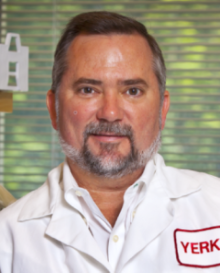
Charles H. (Tom) Sawyer Distinguished Lecture
LARRY YOUNG, Ph.D. (Faculty Host: Paul Micevych and LNE)
Department of Psychiatry, Emory University
“The Neurobiology of Social Bonding, Empathy and Social Loss: Implications for Autism”
Abstract
Social relationships are critical for our well-being. This lecture will present current theories of the neurobiological mechanisms underlying social bonding, empathy, and the consequences of social loss based on studies in monogamous prairie voles. Oxytocin receptor (OXTR) signaling coordinates neural activity to link the neural encoding of partner cues with the rewarding aspects of social affiliation. Diversity in expression patterns of OXTR in the brain contribute to diversity in social behaviors across and within species. Bonded prairie voles display empathy-like consoling behavior toward their partner when they are distressed. Loss of a bonded partner results in the development of depressive-like “grieving” behavior, which is alleviated by oxytocin replacement. Studies in humans suggest that the role of oxytocin on social relationships are conserved from rodents to man. The implications of oxytocin on potential therapies for improving social functioning in psychiatric disorders such as autism will be discussed.
November 17, 2020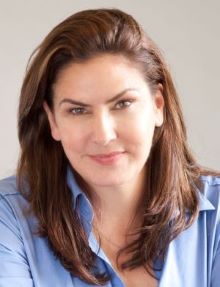
ELIZABETH PHELPS, Ph.D. (Faculty Host: Jennifer Silvers)
Department of Psychology, Harvard University
“Mechanisms of Threat Control”
Abstract
Animal models of associative threat learning provide a basis for understanding human fears and anxiety. Building on research from animal models, I will explore a range of means maladaptive defensive responses can be acquired and diminished in humans. First, I will outline how extinction and emotion regulation, techniques adapted in cognitive behavioral therapy, can be used to control learned defensive responses via inhibitory signals from the ventromedial prefrontal cortex to the amygdala. One drawback of these techniques is that these responses are only inhibited and can return, with one factor being stress. I will then review research examining the lasting control of maladaptive defensive responses by targeting memory reconsolidation and present evidence suggesting that the behavioral interference of reconsolidation in humans diminishes involvement of the prefrontal cortex inhibitory circuitry, although there are limitations to its efficacy. Finally, I will describe two novel behavioral techniques that might result in a more lasting fear reduction by providing control over the stressor and introducing novelty.
December 1, 2020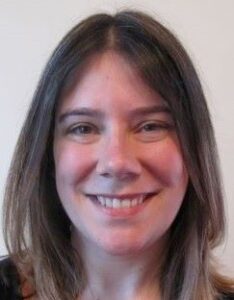
Seminar Recording
MELISSA WARDEN, Ph.D. (Faculty Host: Avishek Adhikari)
Departments of Neurobiology and Behavior, Cornell University
“Neuromodulation and The Balance Between Goal-Directed and Reactive Behavior”
Abstract
Survival requires the ability to adaptively balance the sustained pursuit of future goals with the need to react quickly to important environmental and internal events. Here, I will discuss my lab’s recent work on the role of neuromodulation in regulating the balance between goal-directed and reactive behavior using optical methods for controlling and monitoring neural activity in mice. I will present evidence that phasic activity in serotonin neurons promotes state-dependent behavioral/emotional reactions, and will discuss new data showing that ramping activity in dopamine neurons signifies the use of an internal model of progress toward a goal.
December 8, 2020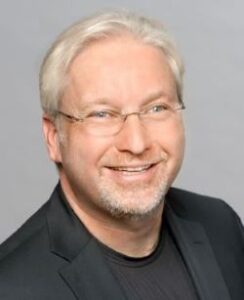
Seminar Recording
TAMAS HORVATH, DVM, Ph.D. (Faculty Host: Jonathan Flint)
Departments of Comparative Medicine, Neuroscience, Obstetrics, Gynecology, and Reproductive Sciences, Yale School of Medicine
“Hunger Promoting Hypothalamic Neurons Drive Healthy Ageing”
Abstract
Emerging evidence indicates that the hypothalamus is a key regulator of the adaptation of the central nervous system (CNS) to the changing environment in support of survival, with subsets of hypothalamic neurons acting as upstream regulators of brain regions classically considered as master determinants of CNS function, such as the cortex and hippocampus. The regulatory role of the hypothalamus in cortical and hippocampal functions is mediated via classical neuronal pathways and by the regulation of peripheral tissue output in the form of hormones and nutrients. Here, we argue that when the relationships between these brain regions and peripheral tissues are reconsidered based on these driving principles of health and survival, it is challenging to envision that long-lasting successful strategies to combat obesity and diabetes can emerge from propagation of satiety and energy expenditure. We also argue that many hypothalamus-driven metabolic principles will have important implications for neurological and psychiatric conditions.
Winter 2021
January 5, 2021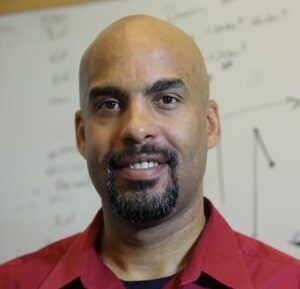
Seminar Recording
DAMIEN FAIR, PA-C, Ph.D. (Faculty Host: Carrie Bearden)
Department of Pediatrics, University of Minnesota
“Developmental Cognitive Neuroscience in the Era of Big Data”
Abstract
The field of Cognitive Neuroscience and, in particular, Developmental Cognitive Neuroscience continues to evolve. New concepts and new technologies, but also new challenges and new pitfalls have emerged in the field. On one hand, these growing pains have highlighted the promise of the work for understanding complex human brain function and its translational potential; but, on the other hand, it has led to frustratingly slow progress. Current modern-day approaches toward characterizing correspondence of complex behavioral phenotypes to networks and systems in the brain requires new sample collection strategies, new study designs, and new analytic strategies – a reality the field has been slow to realize. In the current talk I will highlight some of the pitfalls of the field, as well as, feature new directions that will put the field on more solid footing moving forward.
January 12, 2021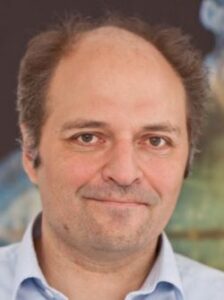
Seminar Recording
Prof. Dr. MICHAEL BRECHT (Faculty Host: Stephanie White)
Department of Neurobiology, Bernstein Center for Computational Neuroscience Berlin
“Blood Is Thicker Than Water”
Abstract
According to Hamilton’s inclusive fitness hypothesis, kinship is an organizing principle of social behavior. Despite the fundamental importance of kinship behavior, the underlying neural mechanisms are poorly understood. Consistent with earlier work by Hepper, we find a developmental time course for kinship behavior, where rats prefer sibling interactions at young ages and express non-sibling preferences at older ages. We find that aspiration lesions of the lateral septum but not control lesions eliminate these behavioral preferences. In recordings non-kin-odor responsive neurons were found dorsally, while kin-odor responsive neurons were located in ventrally in the lateral septum. We refer to this organization as nepotopy. Thus, our results are consistent with a role of the lateral septum in organizing mammalian kinship behavior. If time permits I will also discuss the role of the lateral septum in human and animal cannibalism.
January 19, 2021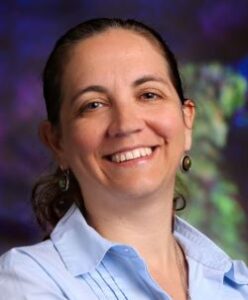
CAGLA EROGLU, Ph.D. (Faculty Host: Samantha Butler)
Departments of Cell Biology and Neurobiology, Duke University
“How do Astrocytes Sculpt Synaptic Circuits?”
Abstract
How are synaptic networks formed during development and remodeled during learning and disease? This is the main question that drives our research. In particular, we investigate the roles of glial cells in the development, remodeling and function of synaptic circuits. In my talk, I will share findings from my lab on two distinct molecular mechanisms through which astrocytes control synapse formation and discuss how synaptogenic astrocyte signals are critical for proper development and function of the nervous system.
January 26, 2021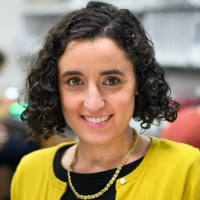
The Integrative Center for Learning and Memory Distinguished Lecturer
ILANA WITTEN, Ph.D. (Faculty Host: Kate Wassum/Michele Basso, and ICLM)
Departments of Psychology and Neuroscience, Princeton University
“Specialized and Spatially Organized Dopamine Signals”
Abstract
I will describe our work showing surprising heterogeneity at the single-cell level in the dopamine system, based on 2-photon calcium imaging during a virtual reality decision-making task. These findings contradict a classic view of a homogenous reinforcement signal in the dopamine system. I will then present unpublished work showing that spikes can be accurately inferred from calcium imaging in dopamine neurons, which leads us to believe that the recording modality is not the source of the discrepancy with the classic view. Finally, I will discuss new work (in collaboration with Prof. Nathaniel Daw) attempting to reconcile this newly observed heterogeneity with classic models regarding the neural instantiation of reinforcement learning.
February 2, 2021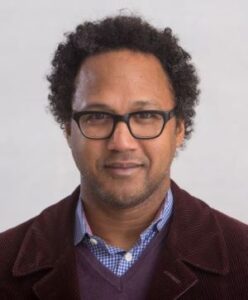
Seminar Recording
ANDRE FENTON, Ph.D. (Faculty Host: Carlos Portera-Cailliau)
Department of Neuroscience, New York University
“Memory, Learning to Learn, and Control of Cognitive Representations”
Abstract
Biological neural networks can represent information in the collective action potential discharge of neurons, and store that information amongst the synaptic connections between the neurons that both comprise the network and govern its function. The strength and organization of synaptic connections adjust during learning, but many cognitive neural systems are multifunctional, making it unclear how continuous activity alternates between the transient and discrete cognitive functions like encoding current information and recollecting past information, without changing the connections amongst the neurons. This lecture will first summarize our investigations of the molecular and biochemical mechanisms that change synaptic function to persistently store spatial memory in the rodent hippocampus. I will then report on how entorhinal cortex-hippocampus circuit function changes during cognitive training that creates memory, as well as learning to learn in mice. I will then describe how the hippocampus system operates like a competitive winner-take-all network, that, based on the dominance of its current inputs, self organizes into either the encoding or recollection information processing modes. We find no evidence that distinct cells are dedicated to those two distinct functions, rather activation of the hippocampus information processing mode is controlled by a subset of dentate spike events within the network of learning-modified, entorhinal-hippocampus excitatory and inhibitory synapses.
February 9, 2021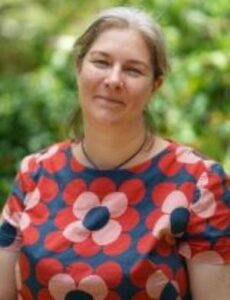
The Eleanor Leslie Term Chair in Pioneering Brain Research
SAMANTHA BUTLER, Ph.D. (Hosted by Felix Schweizer; felixs@ucla.edu)
Department of Neurobiology, University of California Los Angeles
“Molecular Pathways That Accelerate the Regeneration of Axons Following Nerve Injury”
Abstract
Abstract: Regenerating axons often have to grow considerable distances to reestablish circuits, making functional recovery a lengthy process. One solution to this problem would be to co-opt the “temporal” guidance mechanisms that control the rate of axon growth during development to accelerate the rate at which nerves regenerate in adults. Our studies have shown that the loss of Limk1, a negative regulator of cofilin, accelerates the rate of axon growth from both spinal commissural and motor neurons during development. The regulation of cofilin activity also appears to be an acute response to nerve injury in the peripheral nervous system. Within hours of a sciatic nerve injury, the level of phosphorylated cofilin dramatically increases at the lesion site, in a Limk1-dependent manner. This response may be a major constraint on the rate of peripheral nerve regeneration. Proof-of-principle experiments show that elevating cofilin activity, through the loss of Limk1, results in faster sciatic nerve growth, and improved recovery of some sensory and motor function.
February 16, 2021
SHERNAZ BAMJI, Ph.D. (Hosted by Samantha Butler; butlersj@ucla.edu)
Department of Cellular Physiological Science, The University of British Columbia
“Regulation of Synapse Formation and Plasticity by Palmitoylating Enzymes”
Abstract
Abstract: Palmitoylation is the most common post-translational lipid modification in the brain and has been shown to be important for neurite outgrowth, spine and synapse formation, synaptic transmission, and synaptic plasticity. While ~10% of all proteins in the genome are substrates for palmitoylation, a striking 41% of all synaptic proteins can be palmitoylated. Enzymes that mediate palmitoylation have been shown to be associated with brain disorders, further underscoring the importance of palmitoylation in brain development and function. My talk will demonstrate the importance for palmitoylation in regulating synapse formation and plasticity and how disruption of this process can be linked to intellectual disability and seizures.
February 23, 2021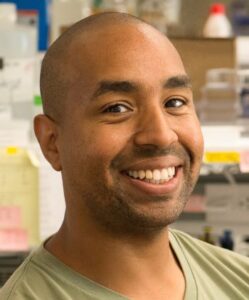
COREY HARWELL, Ph.D. (Hosted by Ben Novitch; bnovitch@ucla.edu)
Department of Neurobiology, Harvard Medical School
“Development and Diversity of Neural Cell Types in the Septum”
Abstract
Abstract: The septum is ventral forebrain structure responsible for the regulation of emotional states including anxiety, fear and depression. The septum contains an extremely diverse array of short- and long-range projecting GABAergic neurons distributed across its two histological subdivisions, the medial and lateral septal nuclei. Both of these regions are heavily interconnected with other brain areas. It is currently unclear how septal neuronal diversity and circuit wiring are specified during development. Using molecular genetics and single-cell/nuclei RNA-seq we have begun to unravel the developmental logic for producing diverse neural cell types in the septum. Our future work is focused on understanding the specific contribution of developmentally specified neural cell types to the regulation of internal states carried out by the septum.
March 2, 2021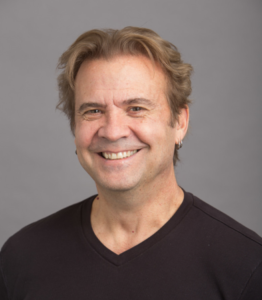
Seminar Recording
The Integrative Center for Learning and Memory Distinguished Lecture
ERIC KLANN, Ph.D. (Hosted by Alcino Silva; silvaa@mednet.ucla.edu)
Departments of Neuroscience, Molecular Physiology & Biophysics, New York University
“Local and Cell Type-Specific Translation in Emotional Memory”
Abstract
Abstract: We have shown that eIF4E-dependent translation in the lateral amygdala is required for the consolidation of auditory threat memory. We also have found evidence for alterations in local dendritic and axonal translation during memory consolidation. We recently developed chemogenetic mouse models for conditional and inducible protein synthesis inhibition (ciPSI) where translation initiation mediated by either eIF4E or eIF2 can be inhibited in a cell type-specific manner. Using these novel ciPSI mouse lines, we have found that translation in discrete cell types in the lateral and centrolateral amygdala make distinct, yet complementary contributions to the consolidation of differential threat memory. Finally, we have developed optogenetic tools that can be used to determine whether local dendritic and/or axonal translation is required for the consolidation of threat memory. Collectively, our findings demonstrate that cell type-specific, and perhaps local, translation initiation is required for threat memory consolidation.
March 9, 2021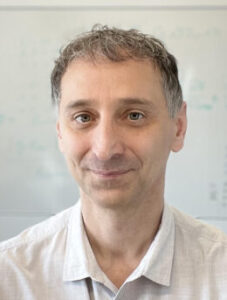
Seminar Recording
The Brain Research Institute 32nd Annual H.W. Magoun Lecture
DEAN BUONOMANO, Ph.D. (Hosted by Felix Schweizer; felixs@ucla.edu)
Departments of Neurobiology and Psychology, University of California Los Angeles
“How Does the Brain Tell Time?”
Abstract
Abstract: The ability to tell time, represent and encode temporal information, and use past experiences to predict the future, are among the most fundamental computations the brain performs. But how do networks of neurons tell time and encode temporal information in a flexible manner? We have proposed that precisely because of the importance of time, most neural circuits are capable of temporal computations. Thus, in contrast to the clocks on our wrists that rely on the same mechanism to tell time across a wide range of scales, the brain engages many different mechanisms and circuits to tell time. We have proposed that on the scale of seconds the brain relies on numerous forms of dynamics inherent to neural systems to tell time. I will review two decades of research from our laboratory in which we have used computational, experimental, and psychophysical approaches to validate this hypothesis.
Spring 2021
March 30, 2021
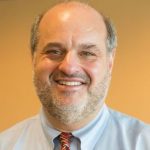 DANIEL SALZMAN, M.D., Ph.D. (Hosted by Michele Basso; mbasso@mednet.ucla.edu)
DANIEL SALZMAN, M.D., Ph.D. (Hosted by Michele Basso; mbasso@mednet.ucla.edu)
Departments of Psychiatry, Neuroscience, Columbia University
“Neural Representations Reconsidered Through Geometry: A Window for Understanding Cognitive Flexibility”
Abstract
Abstract: The curse of dimensionality plagues models of reinforcement learning and decision making. The process of abstraction solves this by constructing variables describing features shared by different instances, reducing dimensionality and enabling generalization in novel situations. Here, we characterized neural representations in monkeys performing a task described by different hidden and explicit variables. Abstraction was defined operationally using the generalization performance of neural decoders across task conditions not used for training, which requires a particular geometry of neural representations. Neural ensembles in prefrontal cortex, hippocampus, and simulated neural networks simultaneously represented multiple variables in a geometry reflecting abstraction but that still allowed a linear classifier to decode a large number of other variables (high shattering dimensionality). Furthermore, this geometry changed in relation to task events and performance. These findings elucidate how the brain and artificial systems represent variables in an abstract format while preserving the advantages conferred by high shattering dimensionality
April 6, 2021
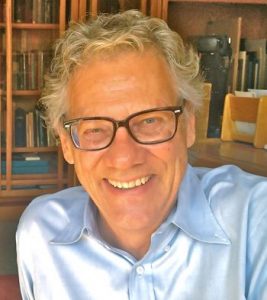 Charles H. (Tom) Sawyer Distinguished Lecture
Charles H. (Tom) Sawyer Distinguished Lecture
LARRY SWANSON, Ph.D. (Hosted by Paul Micevych and LNE; pmicevych@mednet.ucla.edu)
Departments of Biological Sciences, Biological Sciences and Psychology, University of Southern California
“Understanding the Basic Plan of the Nervous System”
Abstract
Abstract: Neuroscientists are facing an avalanche of big data: tens of thousands of genes, RNAs, proteins, neural connections, and more. How can researchers make sense out of this vast amount information and use it to formulate sensible, testable hypothesis about mechanistic relationships between neural circuits, behavior, and mind? The lecture will outline a perspective, strategy, and progress report related one specific problem: our attempt to construct and analyze the basic wiring diagram of a mammalian brain and nervous system—analogous to a periodic table or double helix model for systems neuroscience. One long-term application is a dynamic Google Maps or Google Earth for the nervous system.
April 13, 2021
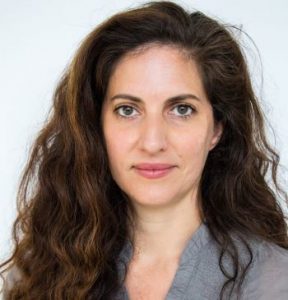 LILA DAVACHI, Ph.D. (Hosted by Barbara Knowlton; knowlton@psych.ucla.edu)
LILA DAVACHI, Ph.D. (Hosted by Barbara Knowlton; knowlton@psych.ucla.edu)
Department of Psychology, Columbia University
“Post-Encoding Persistence of Encoding States Strengthens Individual Memories, Reorganizes Those Experiences Based on Shared Features and Biases the Fate of New Memories”
Abstract
Abstract: Episodic memories can be thought of sequential associations linked together by a common contextual or event representation. There has been much work examining how individual events become stabilized in memory. Here I will present our work in humans first showing that we can measure post-encoding persistence with fMRI and show that this relates to later memory accessibility. Furthermore, we look at how multiple experiences encountered at the same time later are re-organized according to their shared features in both hippocampus and cortex, perhaps relating to the development of knowledge structures which represent related memories with overlapping neural ensembles.
April 27, 2021
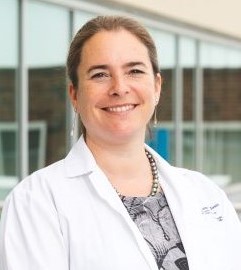 ELSA ROSSIGNOL, M.D. , FRCPC , M.Sc. (Hosted by Peyman Golshani pgolshani@mednet.ucla.edu)
ELSA ROSSIGNOL, M.D. , FRCPC , M.Sc. (Hosted by Peyman Golshani pgolshani@mednet.ucla.edu)
Department of Neuroscience, Universite de Montreal
“Disrupted Cortical Inhibition in Genetic Epileptic Encephalopathies”
Abstract
Abstract: Dr. Elsa Rossignol is a pediatric neurologist at the CHU Sainte-Justine and an associate professor of clinics in the departments of Neurosciences and Pediatrics at the Université de Montréal. She is the recipient of the Canada Research Chair on the Neurobiology of epilepsy. Her research aims to clarify the molecular and cellular basis of pediatric epilepsies. Using Next Generation Sequencing in large cohorts of patients, her lab contributed to the identification of dozens of novel epilepsy genes. Furthermore, her lab uses multimodal approaches to study the network mechanisms by which mutations in these genes result in epilepsy and cognitive deficits, with a focus on their impact on network inhibition. Her recent work revealed the key role of cortical disinhibition in genetic generalized epilepsies with cognitive deficits, and the therapeutic benefits of re-establishing network inhibition on seizures, attention and cognitive flexibility.
May 4, 2021
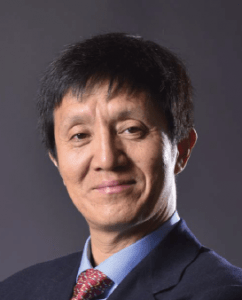 The Annual Brain Research Institute and Molecular Biology Institute Joint Lecture
The Annual Brain Research Institute and Molecular Biology Institute Joint Lecture
LIQUN LUO, Ph.D. (Hosted by Weizhe Hong and Akin Orkun; whong@ucla.edu)
Department of Biology, Stanford University
“Wiring Specificity of Neural Circuits”
Abstract
Abstract: Developing brains utilize a limited number of molecules to specify connection specificity of a much larger number of neurons and synapses. How is this feat achieved? In this talk, I will first discuss our work using the Drosophila olfactory circuit as a model to address this question. I will then discuss analogous functions of some of the wiring molecules we identified in the fly olfactory circuits also in determining wiring specificity of complex circuits in the mammalian brain, focusing on the hippocampal network.
May 18, 2021
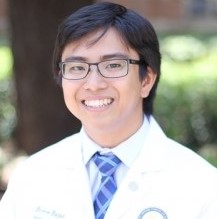 The Brain Research Institute 28th Annual Samuel Eiduson Student Lecture
The Brain Research Institute 28th Annual Samuel Eiduson Student Lecture
BRYCE BAJAR (Hosted by Felix Schweizer; felixs@ucla.edu)
Laboratory of Dr. Larry Zipursky, Department of Biological Chemistry; Laboratory of Dr. Orkun Akin, Department of Neurobiology
“Building Neural Circuits with Developmental Activity”
Abstract
Abstract: Developmental activity accompanies neural circuit assembly. How broadly this activity is coordinated across disparate brain regions is unknown. Similarly, the contribution of patterned activity to synaptic development at the level of defined cell types remains an open question. Here we show that neurons expressing the cation channel Trpγ relay and pattern developmental activity throughout the Drosophila brain. In trpγ mutants, activity is attenuated globally, and both patterns of activity and synapse structure are altered in a cell-type-specific fashion. Less than 2% of the neurons in the brain express Trpγ. These neurons arborize throughout the brain, and silencing or activating them leads to loss or gain of brain-wide activity. We propose that, in Drosophila, developmental activity is driven by a genetically-specified network to instruct circuit assembly.
June 1, 2021
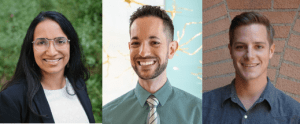 New Brain Research Institute Member Short Talks Part 1 (Hosted by Felix Schweizer; felixs@ucla.edu)
New Brain Research Institute Member Short Talks Part 1 (Hosted by Felix Schweizer; felixs@ucla.edu)
APARNA BHADURI, Ph.D.
Department of Biological Chemistry
“Neural Stem Cell Fate Specification in Human Brain Development and Cancer”
IDAN BLANK, Ph.D.
Departments of Psychology and Linguistics
“The Functional Architecture of Natural Language Comprehension”
DAVID CLEWETT, Ph.D.
Department of Psychology
“Arousal Mechanisms Shape the Selectivity and Structure of Memory”
June 8, 2021
 New Brain Research Institute Member Short Talks Part 2 (Hosted by Felix Schweizer; felixs@ucla.edu)
New Brain Research Institute Member Short Talks Part 2 (Hosted by Felix Schweizer; felixs@ucla.edu)
AHMET ARAC, M.D.
Department of Neurology
“Grab that bottle: Explaining Motor Control”
RANMAL SAMARASINGHE, M.D., PH.D.
Department of Neurology
“Modeling Neural Circuit Formation and Function with Human Brain Organoids”
AUSAF BARI, MA, M.D., Ph.D., FAANS
Department of Neurosurgery
“Pleasure, Pain and Bionic Brains”
CRAMER, M.D., MMSc, FAAN, FAHA
Department of Neurology
“Motor Recovery After Stroke”
June 2, 2020
Zoom Seminar Registration
New Brain Research Institute Member Short Talks Part 1 (Hosted by Felix Schweizer; felixs@ucla.edu)
AGATHA LENARTOWICZ, Ph.D.
Departments of Psychiatry and Biobehavioral Sciences
“Mechanisms of Attention Control, Its Failures & Applications”
PAVAK SHAH, Ph.D.
Departments of Molecular, Cell and Developmental Biology
“From Structure to Function”
JESSICA REXACH, M.D., Ph.D.
Department of Neurology
“Functional Genomics Elucidates Novel Mechanisms of Neurodegeneration”
June 9, 2020
Zoom Seminar Registration
New Brain Research Institute Member Short Talks Part 2 (Hosted by Felix Schweizer; felixs@ucla.edu)
ZIVA COOPER, Ph.D.
Departments of Psychiatry and Biobehavioral Sciences
“Multitissue Multiomics Systems Biology of Complex Diseases”
XIA YANG, Ph.D.
Departments of Integrative Biology and Physiology
“Human Behavioral Pharmacology of Cannabis and Cannabinoids”
June 16, 2020
Zoom Seminar Registration
The Brain Research Institute 31st Annual H.W. Magoun Lecture (Hosted by Felix Schweizer; felixs@ucla.edu)
MICHAEL V. SOFRONIEW, M.D., Ph.D.
Distinguished Professor
Department of Neurobiology, David Geffen School of Medicine at UCLA
“Essential Astrocyte Roles in Protection and Repair after CNS Injury and Disease”
June 23, 2020
NOTE: The lecture will begin at 1:00pm
Zoom Seminar Registration
Brain Research Institute Endowed Term Presentation (Hosted by Gina Poe; ginapoe@g.ucla.edu)
Joanne and George Miller and Family Endowed Chair
MICHELLE G. CRASKE, Ph.D.
Distinguished Professor, Department of Psychology and Psychiatry & Biobehavioral Sciences
Director, Anxiety and Depression Research Center
Director, Innovative Treatment Network, UCLA Depression Grand Challenge
Associate Director, Staglin Family Music Center for Behavioral & Brain Health
Editor-in-Chief, Behaviour Research and Therapy
University of California, Los Angeles
“Neuroscience Informed Behavioral Treatments for Anxiety and Depression”
June 30, 2020
Zoom Seminar Registration
Brain Research Institute Endowed Term Presentation (Hosted by Gina Poe and Alapakkam Sampath; ginapoe@g.ucla.edu; asampath@jsei.ucla.edu)
William Scheibel Chair in Neuroscience
STEPHANIE A. WHITE, Ph.D.
Professor, Department of Integrative Biology & Physiology
Chair, Undergraduate Neuroscience Interdepartmental Program
University of California, Los Angeles
“What a Bird Can Tell You About Your Brain”
Carol Moss Spivak Scholar
PEYMAN GOLSHANI, M.D., Ph.D.
Professor in Residence, Departments of Neurology and Psychiatry,
David Geffen School of Medicine, University of California, Los Angeles
“Breakdown of Spatial Coding in Temporal Lobe Epilepsy”
July 7, 2020
Zoom Seminar Registration
Brain Research Institute Endowed Term Presentation (Hosted by Ketema Paul and Felix Schweizer; ketema.paul@ucla.edu; felixs@ucla.edu)
Frances O’Malley Endowed Chair in Neuroscience History
JOEL T. BRASLOW, M.D., Ph.D.
Professor, Department of Psychiatry and Biobehavioral Sciences
Center for Health Services and Society
Departments of Psychiatry and Behavioral Sciences
“Why History Matters: Understanding Psychopharmacology”
July 14, 2020
Zoom Seminar Registration
Brain Research Institute Endowed Term Presentation (Hosted by Felix Schweizer; felixs@ucla.edu)
Gail Patrick Endowed Administrative Chair in Brain Research
THOMAS J. O’DELL, Ph.D.
Professor, Department of Physiology
Vice Chair, Neuroscience Interdepartmental Ph.D. Program
Assistant Director for Graduate Education
David Geffen School of Medicine
University of California, Los Angeles
“Properties of NeoHebbian Long-term Potentiation in the Hippocampal CA1 Region”
August 11, 2020
Zoom Seminar Registration
JSN Integrative Center for Addictions
NICOLE PETERSEN, Ph.D. (Hosted by Felix Schweizer; felixs@ucla.edu )
Postdoctoral Fellow, Laboratory of Dr. Edythe London Department of Psychiatry and Biobehavioral Sciences, David Geffen School of Medicine, University of California, Los Angeles
“Effects of Sex on the Cortex: Translational Neuroimaging of Male and Female Smokers”
Abstract: Brain imaging technologies have provided scientists with new opportunities to understand the mechanisms that underlie brain disorders. Our team is using these findings to develop noninvasive brain stimulation protocols that modulate behavior and brain function in people with substance use disorders, with special attention to sex differences and the effects of ovarian hormones on brain function.
August 25, 2020
Zoom Seminar Registration
Center for NeuroTechnology (Hosted by Felix Schweizer; felixs@ucla.edu)</span
NADER POURATIAN, M.D., Ph.D.
Department of Neurosurgery
DEJAN MARKOVIC, Ph.D.
Department of Electrical Engineering
NANTHIA SUTHANA, Ph.D.
Department of Neurosurgery
“Center for Neurotechnology (CENT):Bringing together Clinicians, Engineers, and Neuroscientiststogether through Translational Science”
September 15, 2020
Zoom Seminar Registration
JSN Integrative Center for Learning and Memory Lecture
SHAN HUANG, Ph.D. (Hosted by Alcino Silva; silvaa@mednet.ucla.edu )
Postdoctoral Fellow, Laboratory of Dr. Weizhe Hong Departments of Biological Chemistry and Neurobiology, David Geffen School of Medicine, University of California, Los Angeles
“Cortical Representations of Conspecific Sex Shape Social Behavior”
Abstract: A central question related to virtually all social decisions is how animals integrate sex-specific cues from conspecifics. Using microendoscopic calcium imaging in mice, we find that sex information is represented in the dorsal medial prefrontal cortex (dmPFC) across excitatory and inhibitory neurons. These cells form a distributed code that differentiates the sex of conspecifics and is strengthened with social experience. While males and females both represent sex in the dmPFC, male mice show stronger encoding of female cues, and the relative strength of these sex representations predicts sex preference behavior. Using activity-dependent optogenetic manipulations of natively active ensembles, we further show that these specific representations modulate preference behavior toward males and females. Together, these results define a functional role for native representations of sex in shaping social behavior, and reveal a neural mechanism underlying male- vs. female-directed sociality.
Fall 2019
October 1, 2019
ERIN S. CALIPARI, Ph.D. (Hosted by Amie Severino; amieseverino@g.ucla.edu)
Departments of Pharmacology, Molecular Physiology & Biophysics, Psychiatry and Behavioral Sciences, Vanderbilt Center for Addiction Research, Vanderbilt University School of Medicine
“A Novel Framework for Diametric Value Encoding in the Nucleus Accumbens”
October 8, 2019
EMILY LIMAN, Ph.D. (Hosted by Stephen Cannon; sccannon@mednet.ucla.edu )
Department of Biological Sciences, University of Southern California
“Otop1 Proton Channels: Sour Taste and So Much More”
October 15, 2019
ADAM KEPECS, Ph.D. (Hosted by Alicia Izquierdo; aizquie@psych.ucla.edu)
Department of Neurobiology, Cold Spring Harbor Laboratory
“Neurobiology of Confidence: Statistics, Neurons and Psychiatry”
Abstract:
Confidence helps to optimize both routine decisions and momentous ones, yet manifests itself to us as a simple feeling. The inherently subjective nature of confidence has limited investigations by neurobiologists. I will describe an approach that lets us translate psychological questions about subjective confidence into the language of neuroscience. This approach uses a statistical framework for confidence that guides the design of behavioral tasks in rodents and humans and enables quantitative comparison of their behaviors, linking subjective with objective notions of confidence. Then I will describe our results on how rat orbitofrontal cortex mediates confidence-based algorithms to guide behavior. Finally I will discuss how we use computational behavioral phenotyping of confidence to link the neural circuitry underlying maladaptive behavior in rodents to psychopathology in humans.
October 29, 2019
DANIEL DOMBECK, Ph.D. (Hosted by H. Tad Blair; blair@psych.ucla.edu)
Department of Neurobiology, Northwestern University
“Unlocking the Secrets of the Brain’s Spatial Memory System Using Functional Imaging and Virtual Reality for Mice”
Abstract:
My lab studies rodent spatial navigation, essentially how animals get from point A to point B in their environments, how they know where they are in relation to their surroundings and how they form and retrieve spatial memories. To accomplish these goals, mammals form a representation of their local environment inside their brains using different specialized neurons residing in different brain structures, such as place cells in the hippocampus, which are active only in specific locations of a local environment, and grid cells in the medial entorhinal cortex, which are active at many specific locations over the entire environment, forming a regular grid-like structure. We focus on the cellular and circuit mechanisms that generate the firing properties of these navigation neurons with the goal of understanding how internal brain representations are formed, stored, maintained and recalled. My lab uses virtual reality, high-resolution functional imaging and genetic labeling methods that we have developed over the past decade. Currently my lab is studying place cell and grid cell firing and plasticity at scales ranging from single synapses to populations containing up to a thousand neurons.
November 5, 2019
The Arnold Scheibel Distinguished Postdoctoral Fellow in Neuroscience Lecture
ARASH BELLAFARD, Ph.D. (Hosted by Felix Schweizer; felixs@ucla.edu)
“Sequential and Distributed Maintenance of Information in Working Memory”
November 12, 2019
The Brain Research Institute 31st Annual Neuroscience Poster Session Distinguished Lecture
EVE MARDER, Ph.D. (Hosted by Jack Feldman; feldman@g.ucla.edu)
Department of Life Sciences, Brandeis University
“Differential Resilience to Perturbation of Circuits With Similar Performance”
Abstract:
Healthy individual animals and people are nonetheless differentially resilient to environmental challenge. We use experimental and computational methods to explore this resilience in a small nervous system from crabs. Experimental work on the crustacean stomatogastric ganglion (STG) has revealed a 2-6 fold variability in many of the parameters that are important for circuit dynamics. Theoretical work shows that similar network performance can arise from diverse underlying parameter sets. Together, these lines of evidence suggest that each individual animal, at any moment in its life-time, has found a different solution to producing “good enough” motor patterns for healthy performance in the world. This poses the question of the extent to which animals with different sets of underlying circuit parameters can respond reliably and robustly to environmental perturbations and neuromodulation. We use both experimental and computational methods to study the effects of temperature, pH, high K+ concentrations, and neuromodulation on the networks of the STG from the crab, Cancer borealis. While all animals are remarkably robust and reliable to substantial&perturbations, extreme perturbations produce “crashes”. These crashes vary substantially across the animal and in models with different underlying parameter differences. The idiosyncratic nature of the crashes provides heuristic insight into the diverse nature of individuals to extreme perturbations. Moreover, models of homeostatic regulation of intrinsic excitability give insight into the kinds of mechanisms that could give rise to the highly variable solutions to stable circuit performance. The underlying parameter differences across the animals in a population and their differences in crash behavior provide a necessary substrate for evolution.
December 3, 2019
THORSTEN KAHNT, Ph.D. (Hosted by Melissa Sharpe; melissa.j.sharpe@psych.ucla.edu)
Department of Neurology, Northwestern University Feinberg School of Medicine
“Contributions of the Human Orbitofrontal Cortex to Outcome-Guided Behavior”
Abstract:
Research across species has shown that the orbitofrontal cortex (OFC) is critical for decision making. However, it is less clear what computations are carried out by this region that make it so important for this function. I will discuss work from our lab suggesting that the OFC supports decision making by signaling expectations about specific outcomes. Our results show that the human OFC encodes the identity of expected outcomes and that disruption of OFC activity impairs behavior that relies on such expectations. Together, these findings support the idea that the OFC contributes to decision making by representing a model or “cognitive map” of the environment that allows individuals to infer the value of outcomes when direct experience is lacking.
Winter 2020
January 7, 2020
HELEN S MAYBERG, M.D. (Hosted by Nanthia Suthana; nsuthana@mednet.ucla.edu)
Departments of Neurosurgery, Neurology, Neuroscience and Psychiatry, Mount Sinai
“Cancelled”
January 14, 2020
DAVID HOLTZMAN, M.D. (Hosted by William Yang; xwyang@mednet.ucla.edu )
Department of Neurology, Washington University, St. Louis
“APOE,TREM2, and Microglia Pathogenesis Tau Mediated Neurodegeneration”
January 21, 2020
HONGKUI ZENG, Ph.D. (Hosted by Carlos Portera-Cailliau; cpcailliau@mednet.ucla.edu)
Executive Director, Structured Science Division, Allen Institute
“Cell Type Classification and Circuit Mapping in the Mouse Brain”
January 28, 2020
ELIZABETH PHELPS, Ph.D. (Hosted by Jennifer Silvers; silvers@ucla.edu)
Departments of Neuroscience, Psychology, Harvard University
“Mechanisms of Threat Control”
February 4, 2020
The Integrative Center for Learning and Memory Distinguished Lecture
LAURA COLGIN, Ph.D. (Hosted by Mayank Mehta and ICLM; mayank@physics.ucla.edu)
Department of Neuroscience, University of Texas, Austin
“Hippocampal Place Cell Sequence and Memory Performance”
February 11, 2020
XIAO-JING WANG, Ph.D. (Hosted by Dean Buonomano; dbuono@ucla.edu)
Department of Neural Science, New York University
“Distributed Dynamics and Cognition in Large-Scale Brain Circuits”
February 18, 2020
DEAN MOBBS, Ph.D. (Hosted by Avishek Adhikari; avi@psych.ucla.edu)
Assistant Professor, Director: Social, Affective and Ecological Neuroscience Laboratory, California Institute of Technology, Pasadena, California
Department of Cognitive Neuroscience, California Institute of Technology
“Space, Time and Fear: Survival Decisions along Defensive Circuits”
Abstract:
For the purpose of survival, agents use space and time as cues to engage reactive and strategic defensive actions. These time-varying decisions reflect different survival problems that are evoked by external and internal milieu and, which in turn, conscious emotions such as fear and anxiety, emerge. Here, I will discuss a framework according to which fear and anxiety can be mapped along a spatiotemporal dimension of predatory imminence which is associated with structurally different decision-making problems and solutions and maps onto a canonical defense circuit. At the sharpest end, proximal threat is answered by a limited repertoire of reflexive and myopic actions. Abstract or distal threats allow for a wider range of options that engage internal milieu and afford deeper processing, including prospection, replay, planning and controlled actions. This suggests that proximal and distal threat engage distinct defense circuits that work in harmony where the aim is to produce the best survival decision.
February 25, 2020
MALA MURTHY, Ph.D. (Hosted by Jeff Donlea; jdonlea@mednet.ucla.edu)
Professor, Princeton Neuroscience Institute, Princeton University, Princeton, New Jersey
Department of Neuroscience, Princeton University
“Neural and Behavioral Dynamics of a Social Interaction”
Abstract:
Social interactions require continually adjusting behavior in response to sensory feedback. For example, when having a conversation, sensory cues from our partner (e.g., sounds or facial expressions) affect our speech patterns in real time. Our speech signals, in turn, are the sensory cues that modify our partner’s actions. What are the underlying computations and neural mechanisms that govern these interactions? To address these questions, my lab focuses on the acoustic communication system of Drosophila. To our advantage, the fly nervous system is relatively simple, with a wealth of neural circuit tools to interrogate it. Importantly, Drosophila acoustic behaviors are highly quantifiable and robust. During courtship, males produce time-varying songs via wing vibration, while females arbitrate mating decisions. We have discovered that male song patterns are continually sculpted by internal state dynamics and interactions with the female, over timescales ranging from tens of milliseconds to minutes. On the listener side, we have found that courtship song representations are widespread throughout the brain, but that subsets of neurons are critical for extracting complex song features and driving responsive behaviors. I will discuss our work to map the circuits and computations underlying both song production and perception, and explain how our focus on natural acoustic signals provides a powerful, quantitative handle for studying the basic building blocks of communication.
March 3, 2020
ARTURO ALVAREZ-BUYLLA, Ph.D. (Hosted by Ben Novitch; bnovitch@ucla.edu)
Professor, Heather and Melanie Muss Endowed Chair,
Department of Neurological Surgery, University of California, San Francisco
“Born Far From Each Other, But Destined to be Together; How Does the Cerebral Cortex Adjusts The Numbers of Inhibitory Cell”
Spring 2020
March 31, 2020
NOTE: This seminar has been postponed until March 30, 2021
DANIEL SALZMAN, M.D., Ph.D. (Hosted by Michele Basso; mbasso@mednet.ucla.edu)
Departments of Psychiatry, Neuroscience, Columbia University
“Title to be Determined”
April 7, 2020
NOTE: This seminar has been postponed until November 10, 2020
Sawyer Distinguished Lecture
LARRY YOUNG, Ph.D. (Hosted by Paul Micevych and LNE; pmicevych@mednet.ucla.edu )
Department of Psychiatry, Emory University
“The Neurobilogy of Social Bonding, Empathy and Social Loss: Implications for Autism”
April 14, 2020
NOTE: This seminar has been cancelled until further notice.
The Annual Brain Research Institute and Molecular Biology Institute Joint Lecture
LIQUN LUO, Ph.D. (Hosted by Weizhe Hong and Akin Orkun; whong@ucla.edu)
Department of Biology, Stanford University
“Molecular Mechanisms of Neural Circuit Assembly”
April 21, 2020
NOTE: This seminar has been cancelled until further notice.
CAGLA EROGLU, Ph.D. (Hosted by Samantha Butler; butlersj@ucla.edu)
Departments of Cell Biology and Neurobiology, Duke University
“How do Astrocytes Sculpt Synaptic Circuits?”
April 28, 2020
NOTE: This seminar has been cancelled until further notice.
The Integrative Center for Learning and Memory Distinguished Lecture
ERIC KLANN, Ph.D. (Hosted by Alcino Silva; silvaa@mednet.ucla.edu)
Departments of Neuroscience, Molecular Physiology & Biophysics, New York University
“Local and Cell Type-specific Translation in Emotional Memory”
May 5, 2020
NOTE: This seminar has been cancelled until further notice.
LILA DAVACHI, Ph.D. (Hosted by Barbara Knowlton; knowlton@psych.ucla.edu)
Department of Psychology, Columbia University
“Title to be Determined”
May 12, 2020
NOTE: This seminar has been cancelled until further notice.
TAMAS HORVATH, DVM, Ph.D. (Hosted by Jonathan Flint; jflint@mednet.ucla.edu)
Departments of Comparative Medicine, Neuroscience, Obstetrics, Gynecology, and Reproductive Sciences, Yale School of Medicine
“Hunger Promoting Hypothalamic Neurons Drive Healthy Ageing”
May 19, 2020
NOTE: This seminar has been cancelled until further notice.
The Brain Research Institute 28th Annual Samuel Eiduson Student Lecture
TBD (Hosted by Felix Schweizer; felixs@ucla.edu)
“Title to be Determined”
May 26, 2020
NOTE: This seminar has been cancelled until further notice.
MELISSA WARDEN, Ph.D. (Hosted by Avishek Adhikari; avi@psych.ucla.edu)
Departments of Neurobiology and Behavior, Cornell University
“Title to be Determined”
June 2, 2020
Zoom Presentation: New Brain Research Institute Member Short Talks Part 1
AGATHA LENARTOWICZ, Ph.D.
Departments of Psychiatry and Biobehavioral Sciences
PAVAK SHAH, Ph.D.
Departments of Molecular, Cell and Developmental Biology
JESSICA REXACH, M.D., Ph.D.
Department of Neurology (Hosted by Felix Schweizer; felixs@ucla.edu)
Seminar Registration
June 9, 2020
Zoom Presentation: New Brain Research Institute Member Short Talks Part 2
ZIVA COOPER, Ph.D.
Departments of Psychiatry and Biobehavioral Sciences
XIA YANG, Ph.D.
Departments of Integrative Biology and Physiology (Hosted by Felix Schweizer; felixs@ucla.edu)
Seminar Registration
June 16, 2020
The Brain Research Institute 31st Annual H.W. Magoun Lecture
(Hosted by Felix Schweizer; felixs@ucla.edu)
MICHAEL V. SOFRONIEW, M.D., Ph.D.
Distinguished Professor
Department of Neurobiology, David Geffen School of Medicine at UCLA
“Essential Astrocyte Roles in Protection and Repair after CNS Injury and Disease”
Summer 2020
June 23, 2020
NOTE: The lecture will begin at 1:00pm
Zoom Seminar Registration
Brain Research Institute Endowed Term Presentation (Hosted by Gina Poe; ginapoe@g.ucla.edu)
Joanne and George Miller and Family Endowed Chair
MICHELLE G. CRASKE, Ph.D.
Department of Psychology
Distinguished Professor, Department of Psychology and Psychiatry & Biobehavioral Sciences
Director, Anxiety and Depression Research Center
Director, Innovative Treatment Network, UCLA Depression Grand Challenge
Associate Director, Staglin Family Music Center for Behavioral & Brain Health
Editor-in-Chief, Behaviour Research and Therapy
University of California, Los Angeles
“Neuroscience Informed Behavioral Treatments for Anxiety and Depression”
June 30, 2020
Zoom Seminar Registration
Brain Research Institute Endowed Term Presentation (Hosted by Gina Poe and Alapakkam Sampath; ginapoe@g.ucla.edu; asampath@jsei.ucla.edu)
William Scheibel Chair in Neuroscience
STEPHANIE A. WHITE, Ph.D.
Departments of Integrative Biology and Physiology
Professor, Department of Integrative Biology & Physiology
Chair, Undergraduate Neuroscience Interdepartmental Program
University of California, Los Angeles
“What a Bird Can Tell You About Your Brain”
Carol Moss Spivak Scholar
PEYMAN GOLSHANI, M.D., Ph.D.
Department of Neurology
Professor in Residence, Departments of Neurology and Psychiatry,
David Geffen School of Medicine, University of California, Los Angeles
“Breakdown of Spatial Coding in Temporal Lobe Epilepsy”
July 7, 2020
Zoom Seminar Registration
Brain Research Institute Endowed Term Presentation (Hosted by Ketema Paul and Felix Schweizer; ketema.paul@ucla.edu; felixs@ucla.edu)
Frances O’Malley Endowed Chair in Neuroscience History
JOEL T. BRASLOW, M.D., Ph.D.
Departments of Psychiatry and Behavioral Sciences
“Why History Matters: Understanding Psychopharmacology”
July 14, 2020
Zoom Seminar Registration
Brain Research Institute Endowed Term Presentation (Hosted by Felix Schweizer; felixs@ucla.edu)
Gail Patrick Endowed Administrative Chair in Brain Research
THOMAS J. O’DELL, Ph.D.
Department of Physiology
“Properties of NeoHebbian Long-term Potentiation in the Hippocampal CA1 Region”
Fall 2018
October 2, 2018
CRISTINA ALBERINI, Ph.D. (Hosted by Pamela Kennedy; pkennedy@psych.ucla.edu)
Center for Neural Science, New York University, New York, New York)
“Infantile Amnesia: A Critical Period for Learning and Memory Development”
October 9, 2018
The 2018 Integrative Center for Learning and Memory Distinguished Lecture
GYÖRGY BUZSÁKI, M.D. Ph.D. (Hosted by Alcino Silva and ICLM; silvaa@mednet.ucla.edu )
Departments of Neuroscience and Physiology and Neurology, New York University, New York, New York
“Space, Time and Hippocampal Computation”
October 16, 2018
DEANNA BARCH, Ph.D. (Hosted by Jennifer Silvers; silvers@ucla.edu)
Department of Psychological & Brain Sciences, Psychiatry and Radiology, Washington University in St. Louis, St. Louis, Missouri
“Connectomics, Cognition, and Psychosis”
October 23, 2018
The Arnold Scheibel Distinguished Postdoctoral Fellow in Neuroscience Lecture
LIMING TAN, Ph.D. (Hosted by Felix Schweizer; felixs@ucla.edu)
Laboratory of Dr. Larry Zipursky, Department of Biological Chemistry, University of California, Los Angeles; HHMI
“Exploration of Molecular Mechanisms Underlying Neural Circuit Assembly”
October 30, 2018
JAVIER MEDINA, Ph.D. (Hosted by Paul Mathews; pmathews@ucla.edu)
Department of Neuroscience, Baylor College of Medicine, Houston, Texas
“Title to be Determined”
November 8, 2018
The Annual Molecular Biology Institute and Brain Research Institute Joint Lecture
STEVEN MCKNIGHT, Ph.D. (Hosted by David Eisenberg and Ben Novitch; david@mbi.ucla.edu; bnovitch@mednet.ucla.edu)
Department of Biochemistry, University of Texas Southwestern Medical Center, Dallas, Texas
“Title to be Determined”
November 13, 2018
MARK HARNETT, Ph.D. (Hosted by Peyman Golshani; pgolshani@mednet.ucla.edu)
Department of Brain & Cognitive Sciences, Massachusetts Institute of Technology, Cambridge, Massachusetts
“Title to be Determined”
November 27, 2018
The Brain Research Institute 30th Annual Neuroscience Poster Session Distinguished Lecture
ERICH JARVIS, Ph.D. (Hosted by Stephanie White and Gina Poe; sawhite@ucla.edu; ginapoe@ucla.edu)
Laboratory of Neurogenetics of Language, The Rockefeller University; HHMI, New York, New York
“Title to be Determined”
December 4, 2018
NA JI, Ph.D. (Hosted by Carlos Portera-Cailliau; cpcailliau@mednet.ucla.edu)
Departments of Molecular & Cell Biology and Physics, University of California, Berkeley
“Title to be Determined”
December 18, 2018
OLIVER HOBERT, Ph.D. (Hosted by Larry Zipursky; lzipursky@mednet.ucla.edu)
Department of Biological Sciences, Columbia University; HHMI, New York, New York
“Homeobox Genes Build the C.elegans Nervous System”
Winter 2019
January 8, 2019
TALLIE Z. BARAM, M.D., Ph.D. (Hosted by Mirella Dapretto; mirella@g.ucla.edu)
Departments of Pediatrics, Anatomy & Neurobiology, Neurology and Physiology & Biophysics, University of California, Irvine
“How Early-Life Experiences Sculpt Brain-Circuit Maturation”
January 15, 2019
VANESSA RUTA, Ph.D. (Hosted by Larry Zipursky; lzipursky@mednet.ucla.edu)
Laboratory of Neurophysiology and Behavior, The Rockefeller University, New York, New York
“Mechanisms of Adaptive Behavior from Receptors to Circuits”
January 22, 2019
BENJAMIN DENEEN, Ph.D. (Hosted by Ye Zhang; yezhang@ucla.edu)
Department of Neuroscience, Baylor College of Medicine, Houston, Texas
“Decoding the Glial Blueprint in the Normal and Malignant Brain”
February 12, 2019
ANGELA YU, Ph.D. (Hosted by Dara Ghahremani; daraucla@gmail.com)
Department of Cognitive Science, University of California, San Diego
“Computational Modeling of Human Face Processing”
February 26, 2019
KIMBERLEY TOLIAS, Ph.D. (Hosted by Samantha Butler; butlersj@ucla.edu)
Department of Neuroscience, Baylor College of Medicine, Houston, Texas
“Dynamic Rho GTPase Signaling Controlling Neural Circuit Formation and Plasticity”
March 5, 2019
SPENCER SMITH, Ph.D. (Hosted by Arash Bellafard and Peyman Golshani; abellafard@mednet.ucla.edu; pgolshani@mednet.ucla.edu)
Department of Electrical & Computer Engineering, University of California, Santa Barbara
“Mesoscale Imaging of Neural Activity with Subcellular Resolution: Visual Areas Acting in Concert”
March 12, 2019
RICHARD MOONEY, Ph.D. (Hosted by Sotiris Masmanidis; smasmanidis@ucla.edu )
Department of Neurobiology, Duke University School of Medicine, Durham, North Carolina
“From Song to Synapse: Neural Mechanisms of Vocal Learning”
Spring 2019
April 2, 2019
CHRISTOPHER A. WALSH, M.D., Ph.D. (Hosted by Ben Novitch; bnovitch@g.ucla.edu)
Howard Hughes Medical Institute; Division of Genetics and Genomics, Boston Children’s Hospital; Department of Pediatrics and Neurology, Harvard Medical School, Boston, Massachusetts
“One Brain, Many Genomes: Somatic Mutation and Genomic Diversity in Human Brain from Birth to Old Age”
April 9, 2019
ARTHUR P. ARNOLD, Ph.D. (Hosted by Paul Micevych and LNE; pmicevych@mednet.ucla.edu)
Department of Integrative Biology and Physiology, University of California, Los Angeles
“How UCLA Changed Concepts of Sexual Differentiation in the Last Half Century”
April 16, 2019
JASON SHEPHERD, Ph.D. (Hosted by David Glanzman; glanzman@ucla.edu)
Department of Neurobiology and Anatomy, University of Utah, Salt Lake City, Utah
“Viral-like Intercellular Communication in the Nervous System”
April 23, 2019
SURYA GANGULI, Ph.D. (Hosted by Dean Buonomano; dbuono@ucla.edu)
Department of Applied Physics, Stanford University, Stanford, California
“Title to be Determined”
April 30, 2019
The Integrative Center for Learning and Memory Distinguished Lecture
SHEENA A. JOSSELYN, Ph.D. (Hosted by Alcino Silva and ICLM; silvaa@mednet.ucla.edu)
The Hospital for Sick Children; Departments of Psychology, Physiology and Institute of Medical Science, University of Toronto, Toronto, Ontario, Canada
“Making, Breaking and Linking Memories”
May 7, 2019
The New Brain Research Institute Member Short Talks
(Hosted by Felix Schweizer; felixs@ucla.edu)
ORKUN AKIN, Ph.D. – Department of Neurobiology
LUIS DE LA TORRE-UBIETA, Ph.D. – Department of Psychiatry and Biobehavioral Sciences
LINDSAY DE BIASE, Ph.D. – Department of Physiology
LAURA DENARDO, Ph.D. – Department of Physiology
ANDREW WIKENHEISER, Ph.D. – Department of Psychology
May 14, 2019
The Integrative Center for Learning and Memory Distinguished Lecture
RICHARD HUGANIR, Ph.D. (Hosted by Alcino Silva; silvaa@mednet.ucla.edu)
Department of Neuroscience and Psychological and Brain Sciences, The Johns Hopkins University School of Medicine, Baltimore, Maryland
“Regulation of Neurotransmitter Receptors and Synaptic Plasticity in the Brain in Health and Disease”
May 21, 2019
The 27th Annual Samuel Eiduson Student Lecture
DOUGLAS ARNESON, Ph.D. (Hosted by Felix Schweizer; felixs@ucla.edu)
Laboratory of Dr. Xia Yang, Department of Integrative Biology and Physiology, University of California, Los Angeles
“Spatial and Temporal Single Cell Network Alterations Induced by Traumatic Brain Injury”
May 28, 2019
ADAM CARTER, Ph.D. (Hosted by Alapakkam Sampath; asampath@jsei.ucla.edu))
Center for Neural Science, New York University, New York
“Synaptic Organization of the Prefrontal Cortex”
June 4, 2019
RYOHEI YASUDA, Ph.D. (Hosted by Baljit Khakh; bkhakh@mednet.ucla.edu)
Neuronal Signal Transduction, Max Planck Florida Institute for Neuroscience, Jupiter, Florida
“Postsynaptic Biochemical Computation in Single Dendritic Spines”
June 18, 2019
The Brain Research Institute Thirtieth Annual H.W. Magoun Lecture
EDYTHE LONDON, Ph.D. (Hosted by Felix Schweizer; felixs@ucla.edu)
Department of Psychiatry & Biobehavioral Sciences, David Geffen School of Medicine at UCLA
“Neural System, Dopamine Receptors and Stimulant Use: Brain Imaging to Guide Treatment”
Fall 2016
September 27, 2016
MICHAEL A. LONG, Ph.D. (Hosted by Dean Buonomano; dbuono@ucla.edu)
Departments of Otolareyngology and Neuroscience and Physiology
New York University School of Medicine, New York, New York
“How does the brain generate behavioral sequences?”
October 4, 2016
WENDY SUZUKI, Ph.D. (Hosted by James Bisley; jbisley@mednet.ucla.edu)
Center for Neural Science,
New York University, New York, New York
“Adventures in brain plasticity: from memory palaces to SoulCycle”
October 11, 2016
NAOSHIGE UCHIDA, Ph.D. (Hosted by Sotiris Masmanidis; smasmanidis@ucla.edu)
Department of Molecular and Cellular Biology, Center for Brain Science
Harvard University, Cambridge, Massachusetts
“Arithmetic and neural circuits underlying dopamine prediction errors”
October 18, 2016
LISA GIOCOMO, Ph.D. (Hosted by Nanthia Suthana and H. Tad Blair; nsuthana@mednet.ucla.edu; blair@psych.ucla.edu)
Department of Neurobiology,
Stanford University School of Medicine, Stanford, California
“Calculating the algorithms of spatial maps”
October 25, 2016
GARY ASTON-JONES, Ph.D.(Hosted by H. Tad Blair; blair@psych.ucla.edu)
Brain Health Institute,
Rutgers Univeristy, Piscataway, New Jersey
Title to be determined
November 1, 2016
The Arnold Scheibel Distinguished Postdoctoral Fellow in Neuroscience Lecture
MELISSA MALVAEZ, Ph.D. (Hosted by Tom O’Dell; todell@mednet.ucla.edu)
Laboratory of Kate Wassum, Department of Psychology
University of California, Los Angeles
“Releasing the brakes on habit memory”
November 8, 2016
SILVIA ARBER, Ph.D. (Hosted by Ben Novitch; bnovitch@g.ucla.edu)
Biozentrum and Friedrich Miescher Institute,
University of Basel, Basel, Switzerland
“Disentangling neuronal circuits for motor control”
November 29, 2016
The Brain Research Institute 28th Annual Neuroscience Poster Session Distinguished Lecture
YUH-NUNG JAN, Ph.D. (Hosted by Shuwa Xu; sxu@mednet.ucla.edu)
Departments of Physiology and Biochemistry
University of California, San Francisco
Title to be determined
Note: this lecture will be held at 4:00pm, in Ackerman Union Grand Ballroom
Spring 2017
May 9, 2017
STAN FLORESCO, Ph.D. ((Hosted by Alicia Izquierdo; aizquie@psych.ucla.edu)
Department of Psychology
The University of British Columbia, Vancouver, British Columbia, Canada
“Uncertainty, Choice, and Dopamine”
May 11, 2017
The Annual Brain Research Institute and Molecular Biology Institute Joint Lecture
SUSAN L. ACKERMAN, Ph.D. (Hosted by Douglas Black and Chris Evans: DougB@microbio.ucla.edu)
Howard Hughes Medical Institute; Division of Biological Sciences, Section of Neurobiology, Cell and Molecular Medicine
University of California, San Diego
“Translational Dysfunction and Neurodegeneration”
May 16, 2017
The 25th Annual Samuel Eiduson Student Lecture
SUPRAJA VARADARAJAN (Hosted by Felix Schweizer; felixs@ucla.edu)
Laboratory of Dr. Samantha Butler, Department of Neurobiology
University of California, Los Angeles
“Redefining the Role of Netrin1 as an Axon Guidance Cue in the Developing Spinal Cord”
May 23, 2017
GARRET STUBER, Ph.D. (Hosted by Kate Wassum; kwassum@ucla.edu)
Departments of Psychiatry & Cell Biology and Physiology
University of North Carolina at Chapel Hill, Chapel Hill, NC
“Dissecting the Neural Circuits that Mediate Motivated Behavior”
May 30, 2017
WOLFRAM SCHULTZ, Ph.D. (Hosted by Michele Basso; mbasso@mednet.ucla.edu)
Department of Physiology Development and Neuroscience
University of Cambridge, United Kingdom
“Getting the Best Deal: Neuronal Rewards Signals for Economic Utility Maximization”
June 6, 2017
Charles H. (Tom) Sawyer Distinguished Lecture
MARTIN J. KELLY, Ph.D. (Hosted by Art Arnold and the LNE; arnold@ucla.edu)
Department of Physiology and Pharmacology
Oregon Health and Sciences University, Portland, Oregon
“Integration of the Anorexigenic Effects of Estradiol and Metabolic Hormones by Hypothalamic Arcuate Neurons”
June 20, 2017
The Brain Research Institute Twenty-Eighth Annual H.W. Magoun Lecture
SUSAN BOOKHEIMER, Ph.D. (Hosted by Chris Evans; cevans@g.ucla.edu)
Joaquin Fuster Professor of Cognitive Neuroscience, Director, Staglin IMHRO MRI Laboratory, Director, Intellectual and Developmental Disabilities Research Center, Departments of Psychiatry and Biobehavioral Sciences
University of California, Los Angeles
“The Uniquely Human Hippocampus: Evidence from Functional Imaging in Health and Disease”
Fall 2016
September 27, 2016
MICHAEL A. LONG, Ph.D. (Hosted by Dean Buonomano; dbuono@ucla.edu)
Departments of Otolareyngology and Neuroscience and Physiology
New York University School of Medicine, New York, New York
“How does the brain generate behavioral sequences?”
October 4, 2016
WENDY SUZUKI, Ph.D. (Hosted by James Bisley; jbisley@mednet.ucla.edu)
Center for Neural Science,
New York University, New York, New York
“Adventures in brain plasticity: from memory palaces to SoulCycle”
October 11, 2016
NAOSHIGE UCHIDA, Ph.D. (Hosted by Sotiris Masmanidis; smasmanidis@ucla.edu)
Department of Molecular and Cellular Biology, Center for Brain Science
Harvard University, Cambridge, Massachusetts
“Arithmetic and neural circuits underlying dopamine prediction errors”
October 18, 2016
LISA GIOCOMO, Ph.D. (Hosted by Nanthia Suthana and H. Tad Blair; nsuthana@mednet.ucla.edu; blair@psych.ucla.edu)
Department of Neurobiology,
Stanford University School of Medicine, Stanford, California
“Calculating the algorithms of spatial maps”
October 25, 2016
GARY ASTON-JONES, Ph.D.(Hosted by H. Tad Blair; blair@psych.ucla.edu)
Brain Health Institute,
Rutgers Univeristy, Piscataway, New Jersey
Title to be determined
November 1, 2016
The Arnold Scheibel Distinguished Postdoctoral Fellow in Neuroscience Lecture
MELISSA MALVAEZ, Ph.D. (Hosted by Tom O’Dell; todell@mednet.ucla.edu)
Laboratory of Kate Wassum, Department of Psychology
University of California, Los Angeles
“Releasing the brakes on habit memory”
November 8, 2016
SILVIA ARBER, Ph.D. (Hosted by Ben Novitch; bnovitch@g.ucla.edu)
Biozentrum and Friedrich Miescher Institute,
University of Basel, Basel, Switzerland
“Disentangling neuronal circuits for motor control”
November 29, 2016
The Brain Research Institute 28th Annual Neuroscience Poster Session Distinguished Lecture
YUH-NUNG JAN, Ph.D. (Hosted by Shuwa Xu; sxu@mednet.ucla.edu)
Departments of Physiology and Biochemistry
University of California, San Francisco
Title to be determined
Note: this lecture will be held at 4:00pm, in Ackerman Union Grand Ballroom
Spring 2017
May 9, 2017
STAN FLORESCO, Ph.D. ((Hosted by Alicia Izquierdo; aizquie@psych.ucla.edu)
Department of Psychology
The University of British Columbia, Vancouver, British Columbia, Canada
“Uncertainty, Choice, and Dopamine”
May 11, 2017
The Annual Brain Research Institute and Molecular Biology Institute Joint Lecture
SUSAN L. ACKERMAN, Ph.D. (Hosted by Douglas Black and Chris Evans: DougB@microbio.ucla.edu)
Howard Hughes Medical Institute; Division of Biological Sciences, Section of Neurobiology, Cell and Molecular Medicine
University of California, San Diego
“Translational Dysfunction and Neurodegeneration”
May 16, 2017
The 25th Annual Samuel Eiduson Student Lecture
SUPRAJA VARADARAJAN (Hosted by Felix Schweizer; felixs@ucla.edu)
Laboratory of Dr. Samantha Butler, Department of Neurobiology
University of California, Los Angeles
“Redefining the Role of Netrin1 as an Axon Guidance Cue in the Developing Spinal Cord”
May 23, 2017
GARRET STUBER, Ph.D. (Hosted by Kate Wassum; kwassum@ucla.edu)
Departments of Psychiatry & Cell Biology and Physiology
University of North Carolina at Chapel Hill, Chapel Hill, NC
“Dissecting the Neural Circuits that Mediate Motivated Behavior”
May 30, 2017
WOLFRAM SCHULTZ, Ph.D. (Hosted by Michele Basso; mbasso@mednet.ucla.edu)
Department of Physiology Development and Neuroscience
University of Cambridge, United Kingdom
“Getting the Best Deal: Neuronal Rewards Signals for Economic Utility Maximization”
June 6, 2017
Charles H. (Tom) Sawyer Distinguished Lecture
MARTIN J. KELLY, Ph.D. (Hosted by Art Arnold and the LNE; arnold@ucla.edu)
Department of Physiology and Pharmacology
Oregon Health and Sciences University, Portland, Oregon
“Integration of the Anorexigenic Effects of Estradiol and Metabolic Hormones by Hypothalamic Arcuate Neurons”
June 20, 2017
The Brain Research Institute Twenty-Eighth Annual H.W. Magoun Lecture
SUSAN BOOKHEIMER, Ph.D. (Hosted by Chris Evans; cevans@g.ucla.edu)
Joaquin Fuster Professor of Cognitive Neuroscience, Director, Staglin IMHRO MRI Laboratory, Director, Intellectual and Developmental Disabilities Research Center, Departments of Psychiatry and Biobehavioral Sciences
University of California, Los Angeles
“The Uniquely Human Hippocampus: Evidence from Functional Imaging in Health and Disease”
Winter 2016
January 12, 2016
ADAM GAZZALEY, M.D., Ph.D. (Hosted by Jesse Rissman; rissman@psych.ucla.edu)
Departments of Neurology, Physiology and Psychiatry, University of California, San Francisco
“Technology Meets Neuroscience – A Vision of the Future of Medicine and Education”
January 19, 2016
GORDON FISHELL, Ph.D. (Hosted by Ben Novitch and the ICNR; bnovitch@g.ucla.edu)
Department of Neurobiology and Ophthalmology and Visual Science, Yale University, New Haven, Connecticut
“The Integration of Interneurons into Brain Circuits: Both Nature and Nurture”
January 26, 2016
YAEL NIV, Ph.D. (Hosted by Alicia Izquierdo and the ICLM; aizquie@psych.ucla.edu)
Princeton Neuroscience Institute and Department of Psychology, Princeton University, Princeton, New Jersey
“What is the Role of the Orbitofrontal Cortex in Reinforcement Learning?”
February 2, 2016
SARAH ROSS, Ph.D. (Hosted by Ben Novitch; bnovitch@g.ucla.edu)
Department of Neurobiology, University of Pittsburgh, Pittsburgh, Pennsylvania
“A Neural Basis for the Inhibition of Itch by Counter-Stimuli”
February 9, 2016
GREG BASHAW, Ph.D.(Hosted by Samantha Butler; butlersj@ucla.edu)
Department of Neuroscience, University of Pennsylvania School of Medicine, Philadelphia, Pennsylvania
“To Cross or Not to Cross: Molecular Mechanisms that Regulate Axon Guidance at the Midline”
February 16, 2016
FRED RIEKE, Ph.D.(Hosted by A.P. Sampath; asampath@jsei.ucla.edu)
Departments of Physiology and Biophysics, Physics and Ophthalmology, University of Washington; HHMI, Seattle, Washington
“Retinal Encoding of Natural Images”
February 23, 2016
LORENZ STUDER, M.D., Ph.D. (Hosted by Ben Novitch and Daniel Geschwind; bnovitch@g.ucla.edu; dhg@mednet.ucla.edu)
Developmental Biology Program, Memorial Sloan Kettering Cancer Center, New York, New York
“Applications of Human ESC and IPSC-derived Neurons in the Gut, Muscle and Brain”
March 1, 2016
GEOFFREY SCHOENBAUM, M.D., Ph.D. (Hosted by Kate Wassum; kwassum@ucla.edu)
Cellular Neurobiology Research Branch, Behavioral Neurophysiology Neuroscience Section, National Institute on Drug Abuse, Baltimore, Maryland
“How Do You (Estimate You Will) like Them Apples? The Role of the Orbitofrontal Cortex in Imagining Outcomes and Changes Caused by the Use of an Addictive Drug”
March 8, 2016
The 24th Annual Samuel Eiduson Student Lecture
TESSA HARRISON (Hosted by Felix Schweizer; felixs@ucla.edu)
Laboratory of Dr. Susan Bookheimer, Department of Psychiatry and Biobehavioral Sciences, University of California, Los Angeles
“Neuroimaging Markers of Genetic Risk for Alzheimer’s Disease in Cognitively Healthy Cohorts”
Spring 2016
March 29, 2016
Charles H. (Tom) Sawyer Distinguished Lecture (Hosted by Art Arnold and the LNE; arnold@ucla.edu)
GEERT de VRIES, Ph.D.
Neuroscience Institute, Georgia State University, Atlanta, Georgia
“Sex differences in the brain: a whole body perspective”
April 5, 2016
ERIC KLANN, Ph.D. (Hosted by Carlos Portera-Cailliau; cpcailliau@mednet.ucla.edu)
Center for Neural Science, New York University, New York, New York
“Translational control: synapses, circuits, behavior, and brain disorders”
April 19, 2016
LARRY ABBOTT, Ph.D. (Hosted by H. Tad Blair and Dean Buonomano; blair@psych.ucla.edu; dbuono@ucla.edu)
Center for Theoretical Neuroscience, Departments of Neuroscience and Physiology and Cellular Biophysics, Columbia University, New York, New York
“Lessons from building network models”
April 26, 2016
New BRI Member Introduction Lecture (Hosted by Chris Evans; cevans@g.ucla.edu)
JENNIFER SILVERS, Ph.D.
Department of Psychology, UCLA
“Neurodevelopmental bases of self-regulatory and social influences on emotion”
DEJAN MARKOVIC, Ph.D.
Department of Electrical Engineering, UCLA
“Neuroengineering the next decade”
May 3, 2016
LINDA SPEAR, Ph.D.(Hosted by Alizia Izquierdo and the ICA; aizquie@psych.ucla.edu)
Department of Psychology, Binghamton University, State University of New York, Binghamton, New York
“Adolescents and alcohol: acute sensitivities, enhanced intake and later consequences”
May 10, 2016
ROGER K. SUNAHARA, Ph.D. (Hosted by Chris Evans and the MBI; cevans@g.ucla.edu)
Department of Pharmacology, University of California, San Diego
Title to be determined
May 24, 2016
ED LEIN, Ph.D. (Hosted by Daniel Geschwind and the ICNG; dhg@mednet.ucla.edu)
Allen Institute for Brain Science, Seattle, Washington
“Probing the molecular and cellular makeup of the human and non-human primate neocortex”
May 31, 2016
AMITA SEHGAL, Ph.D. (Hosted by Kelsey Martin; kcmartin@mednet.ucla.edu)
Department of Neuroscience, Perelman School of Medicine, University of Pennsylvania, Philadelphia, Pennsylvania
“Unraveling the mysteries of sleep: when, why, and how”
June 14, 2016
The Brain Research Institute Twenty-Seventh Annual H.W. Magoun Lecture
BALJIT KHAKH, Ph.D. (Hosted by Chris Evans; cevans@g.ucla.edu)
Departments of Physiology and Neurobiology, UCLA
“Astrocyte roles in neural circuits; new tools, findings and concepts”
Fall 2014
October 7, 2014
ULRIKE HEBERLEIN, Ph.D. (Hosted by Larry Zipursky; LZipursky@mednet.ucla.edu)
Scientific Program Director, Laboratory Head, Janelia Research Campus; HHMI Ashburn, Virginia
“Flies and Alcohol: An Interplay of Nature and Nurture”
October 14, 2014
TIRIN MOORE, Ph.D. (Hosted by Michele Basso; MBasso@mednet.ucla.edu)
Department of Neurobiology, Stanford University; HHMI, Stanford, California
“The Influence of Gaze Control Circuits on Visual Cortical Signals and its Relation to Perception and Cognition”
October 21, 2014
SHEENA JOSSELYN, Ph.D. (Hosted by Dean Buonomano; DBuono@ucla.edu)
Department of Physiology, University of Toronto, Canada; Neurosciences and Mental Health, Hospital for Sick Children Research Institute, Toronto, Canada
“Making, Breaking and Linking Memories”
October 28, 2014
SONGHAI SHI, Ph.D. (Hosted by Ben Novitch; BNovitch@mednet.ucla.edu)
Developmental Biology Program, Sloan Kettering Institute, Memorial Sloan Kettering Cancer Center, New York, New York
“Lineage-Dependent Circuit Assembly in the Mouse Cortex”
November 4, 2014
The Arnold Scheibel Distinguished Postdoctoral Fellow in Neuroscience Lecture
JASON STEIN, Ph.D. (Hosted by Baljit Khakh; BKhakh@mednet.ucla.edu)
Laboratory of Dr. Daniel Geschwind, Department of Neurology, University of California, Los Angeles
“Evaluating Human Neural Stem Cell Models using a Transcriptomic Rubric”
December 2, 2014
RACHEL WONG, Ph.D. (Host Chris Evans; cevans@ucla.edu)
Department of Biological Structure, University of Washington, Seattle, Washington
“Circuit Assembly ,Disassembly and Reassembly in the Vertebrate Retina”
December 9, 2014
BEN BARRES, Ph.D. (Hosted by Baljit Khakh; Bkhakh@mednet.ucla.edu)
Department of Neurobiology, Developmental Biology, and Neurology, Stanford University
“What Do Astrocytes Do?”
Winter 2015
January 6, 2015
WILLIAM NEWSOME, Ph.D. (Hosted by Michele Basso; MBasso@mednet.ucla.edu)
Department of Neurobiology, Stanford University; Stanford Neurosciences Institute; HHMI, Stanford, California
“Rethinking Gating: Selective Integration of Sensory Signals through Network Dynamics in Prefrontal Cortex”
January 13, 2015
MARK BEVAN, Ph.D. (Hosted by Stephanie White; sawhite@ucla.edu)
Department of Physiology, Feinberg School of Medicine, Northwestern University, Chicago, Illinois
“NMDA Receptor-Dependent Maladaptive Plasticity of the Subthalamic Nucleus in Experimental Parkinson’s Disease”
January 20, 2015
THOMAS SCHWARZ, Ph.D. (Hosted by Felix Schweizer; felixs@ucla.edu)
F.M. Kirby Neurobiology Center, Boston Children’s Hospital; Department of Neurobiology, Harvard Medical School, Boston, Massachusetts
“Mitochondrial Motility and Mitophagy in Neurons”
January 27, 2015
ELLY NEDIVI, Ph.D. (Hosted by Carlos Portera-Cailliau; cpcailliau@ucla.edu)
Picower Institute for Learning and Memory, Department of Brain and Cognitive Sciences, Massachusetts Institute of Technology, Cambridge, Massachusetts
“Structural Dynamics of Neocortical Inhibitory Circuits”
February 3, 2015
SABINE KASTNER, M.D., Ph.D. (Hosted by Michele Basso; MBasso@mednet.ucla.edu)
Department of Psychology, Princeton Neuroscience Institute, Princeton University, Princeton, New Jersey
“Neural Network Dynamics for Attentional Selection in the Primate Brain”
February 10, 2015
DANIEL SALZMAN, M.D., Ph.D. (Hosted by Michele Basso; MBasso@mednet.ucla.edu)
Departments of Psychiatry and Neuroscience, Kavli Institute for Brain Science, Columbia University, New York, New York
“Amygdalar Mechanisms for Innate, Learned and Regulated Emotional Behavior”
February 17, 2015
ALISON GOATE, D.Phil. (Hosted by Nelson Freimer; nfreimer@mednet.ucla.edu)
Department of Psychiatry, Washington University, St. Louis, Missouri
“Recurrent Networks in Basal Ganglia and Repetitive Motor Action”
March 3, 2015
Charles H. (Tom) Sawyer Distinguished Lecture
CATHERINE WOOLLEY, Ph.D. (Hosted by Art Arnold and the LNE; arnold@ucla.edu)
Department of Neurobiology, Northwestern University, Evanston, Illinois
“Neurosteroid Estrogens in the Hippocampus: Implications for Epilepsy”
March 10, 2015
The Brain Research Institute Twenty-Sixth Annual H.W. Magoun Lecture
ISTVAN MODY, Ph.D. (Hosted by Chris Evans; cevans@ucla.edu)
Departments of Neurology and Physiology, University of California, Los Angeles
“Inhibition in the Brain: Watching the Wheels go Round and Round”
Spring 2015
March 31, 2015
DAVID JENTSCH, Ph.D. (Hosted by Chris Evans; cevans@ucla.edu)
Departments of Psychology and Psychiatry and Biobehavioral Sciences, University of California, Los Angeles
“Reward, Interrupted: Inhibitory Control and its Relevance for Addictions”
April 7, 2015
HONG-WEI DONG, M.D., Ph.D. (Hosted by Chris Evans; cevans@ucla.edu)
Department of Neurology, Institute for Neuroimaging and Informatics, Zilkha Neurogenetic Institute, Keck School of Medicine at University of Southern California
“Assembling Neural Networks of the Mouse Neocortex”
April 14, 2015
PATRICIA H. JANAK, Ph.D. (Hosted by Sotiris C. Masmanidis; smasmanidis@ucla.edu)
Departments of Psychological and Brain Sciences and Neuroscience, Johns Hopkins University, Baltimore, Maryland
“Parsing the Contribution of Dopamine to Learning and Performance”
April 28, 2015
PAUL KENNY, Ph.D. (Hosted by Chris Evans; cevans@ucla.edu)
Department of Pharmacology and Systems Therapeutics; Experimental Therapeutics Institute, Mount Sinai Hospital, New York, New York
“Role for Habenlar Systems in Regulating Nicotine Addiction”
May 5, 2015
ANDREAS LUTHI, Ph.D. (Hosted by Michael Fanselow and ICLM; fanselow@psych.ucla.edu)
Friedrich Miescher Institute for Biomedical Research, Basel, Switzerland
“Deconstructing Fear”
May 12, 2015
NOELLE L’ETOILE, Ph.D. (Hosted by Alvaro Sagasti; sagasti@mcdb.ucla.edu)
Department of Cell and Tissue Biology, University of California, San Francisco
“Endogenous RNAi in Behavioral Adaptation
May 19, 2015
The 23rd Annual Samuel Eiduson Student Lecture
NEELROOP PARIKSHAK (Hosted by Felix Schweizer; felixs@ucla.edu)
Laboratory of Dr. Daniel Geschwind, Departments of Neurology, Psychiatry and Biobehavioral Sciences and Human Genetics, University of California, Los Angeles
“Insights into the Molecular Underpinnings of Autism from the Analysis of Gene Expression in Human Brain”
May 26, 2015
EVAN EICHLER, Ph.D. (Hosted by Carrie Bearden and the ICN; cbearden@mednet.ucla.edu)
Department of Genome Sciences, University of Washington; Howard Hughes Medical Institute, Seattle, Washington
“Genome Structure, Neurocognitive Disease and Evolution”
June 2, 2015
ELIZABETH BUFFALO, Ph.D. (Hosted by James Bisley; jbisley@mednet.ucla.edu)
Department of Physiology and Biophysics, University of Washington, Seattle, Washington
“Neural Signals for Navigation and Exploration in the Medial Temporal Lobe”
Fall 2013
October 2, 2012
STEPHEN M. SMITH, Ph.D. (Hosted by Felix Schweizer and Kathy Myers; felixs@ucla.edu)
Division of Pulmonary & Critical Care Medicine, and Department of Physiology & Pharmacology, Oregon Health & Science University; Section of Pulmonary & Critical Care Medicine, Portland V.A. Medical Center
“Differential Regulation of Neurotransmitter Release by Calcium”
October 15, 2013
ANTHONY SAMUEL LAMANTIA, Ph.D. (Hosted by Stephanie White; sawhite@ucla.edu)
Professor of Pharmacology and Physiology; Director, The George Washington Institute of Neuroscience, The George Washington University School of Medicine and Health Sciences
“When Half is Not Enough: DiGeorge/22q11 Deletion Syndrome and Disorders of Cortical Circuit Development”
October 22, 2013
LESLIE C. GRIFFITH, M.D., Ph.D. (Hosted by David Krantz; DKrantz@mednet.ucla.edu)
Nancy Lurie Marks Professor of Neuroscience; Director, Volen National Center for Complex Systems, Department of Biology, Brandeis University, Waltham, Massachusettsnick
“Sleep: Insights into an Essential Behavior from an Insect Model”
October 29, 2013
YANG DAN, Ph.D. (Hosted by Peyman Golshani; pgolshani@mednet.ucla.edu)
Department of Molecular and Cell Biology, Helen Wills Neuroscience Institute, University of California, Berkeley; Howard Hughes Medical Institute
“Basal Forebrain Modulation of Brain States”
November 5, 2013
The Arnold Scheibel Distinguished Postdoctoral Fellow in Neuroscience Lecture
CAROLINE A. MONTOJO, Ph.D. (Hosted by David Jentsch; Jentsch@psych.ucla.edu)
Laboratory of Dr. Carrie Bearden, Semel Institute for Neuroscience and Human Behavior, and the Department of Psychology, University of California, Los Angeles
“Dysfunctional Cognitive Control as a Liability Factor for Psychosis in a Genetic High Risk Population”
November 19, 2013
The Arnold Scheibel Distinguished Postdoctoral Fellow in Neuroscience Lecture
ANATOL KREITZER, Ph.D.
The Gladstone Institute, and the Department of Physiology and Neurology, University of California, San Francisco
“Using Optogenetic Approaches to Elucidate and Reverse Motor Dysfunction Associated with Parkinson’s Disease”
December 3, 2013
The Brain Research Institute 25th Anniversary Neuroscience Poster Session Distinguished Lecturer
MARTIN CHALFIE, Ph.D. (Hosted by Chris Evans; cevans@ucla.edu)
Nobel Laureate in Chemistry 2008; William R Kenan Jr. Professor of Biological Sciences, Columbia University, New York
“Mechanosensory Transduction and its Modification in C. elegans”
Winter 2014
January 7, 2014
AARON DIANTONIO, Ph.D. (Hosted by Ming Guo; Mingfly@ucla.edu)
Department of Developmental Biology, Washington University School of Medicine, St. Louis, Missouri
“Walking the Highwire from Synaptic Growth to the Axonal Injury Response”
January 14, 2014
JEFFREY L. NOEBELS, M.D., Ph.D. (Hosted by Felix Schweizer; Felixs@ucla.edu)
Cullen Trust for Health Care Endowed Chair, Departments of Neurology, Neuroscience, and Molecular and Human Genetics, Baylor College of Medical, Houston, Texas
“From Shaker to SUMO: Potassium Channels in Epilepsy”
January 21, 2014
ROSA COSSART, Ph.D. (Hosted by Carlos Portera-Cailliau; CPCailliau@mednet.ucla.edu)
INMED, INSERM, Marseille, France
“A Neuronal ‘Birthright’ in the Functional Organization of Hippocampal Networks in Health and Disease”
January 28, 2014
SCOTT M. STERNSON, Ph.D. (Hosted by Tom Otis; OtisT@mednet.ucla.edu)
Howard Hughes Medical Institute, Janelia Farm Research Campus, Ashburn, Virginia
“Neural Circuits and Motivational Mechanisms for Hunger”
February 4, 2014
JEFF MAGEE, Ph.D. (Hosted by Tom Otis; OtisT@mednet.ucla.edu)
Howard Hughes Medical Institute, Janelia Farm Research Campus, Ashburn, Virginia
“Low Level Information Processing in Neocortical and Hippocampal Microcircuits”
February 11, 2014
MARK T. D’ESPOSITO, Ph.D. (Hosted by Carrie Bearden; CBearden@mednet.ucla.edu)
Professor of Neuroscience and Psychology, Director, Henry H. Wheeler, Jr. Brain Imaging Center Helen Wills Neuroscience Institute, University of California, Berkeley
“A Blueprint for Cognitive Control: Multiple Neural Mechanisms”
February 18, 2014
JOSEPH F. CHEER, Ph.D. (Hosted by Anne Andrews and Jon Heston; AAndrews@mednet.ucla.edu)
Department of Anatomy & Neurobiology, and Psychiatry, Graduate Program in Neuroscience, University of Maryland School of Medicine, Baltimore
“Endogenous Cannabinoids and the Neurobiological Control of Motivated Behavior”
February 25, 2014
DAVID A. MCCORMICK, Ph.D. (Hosted by Tad Blair and Tom Otis; OtisT@mednet.ucla.edu)
Department of Neurobiology, Yale University School of Medicine, New Haven, Connecticut
“Cortical States: Cellular and Network Mechanisms”
March 4, 2014
JOHN L.R. RUBENSTEIN M.D., Ph.D. (Hosted by Dan Geschwind; dhg@mednet.ucla.edu)
Nina Ireland Distinguished Professor in Child Psychiatry; Nina Ireland Laboratory of Developmental Neurobiology, Center for Neurobiology and Psychiatry, Department of Psychiatry, University of California, San Francisco
“Transcriptional Control of Cell Fate in the Developing Telencephalon”
Spring 2014
April 1, 2014
Charles H. (Tom) Sawyer Distinguished Lecture
DAVID CREWS, Ph.D. (Hosted by Art Arnold and the LNE; arnold@ucla.edu)
Ashbel Smith Professor of Zoology and Psychology, University of Texas at Austin
“Sex, Nature and Nurture: Ancestral Exposure Modifies Sex Differences in Stress Reactivity”
April 8, 2014
AHMAD HARIRI, Ph.D. (Hosted by Anne Andrews and Susan Bookheimer; aandrews@mednet.ucla.edu)
Department of Psychology & Neuroscience, and Institute for Genome Sciences & Policy, Duke University, Durham, North Carolina
“Above it All: Epigenetic Regulation of Behaviorally and Clinically Relevant Human Brain Function”
April 15, 2014
YI ZUO, Ph.D. (Hosted by Carlos Portera-Cailliau; CPCailliau@mednet.ucla.edu)
Department of Molecular Cell and Developmental Biology, University of California, Santa Cruz
“Synapse Reorganization in the Living Brain”
April 22, 2014
NICOLA J. ALLEN, Ph.D. (Hosted by Baljit Khakh; bkhakh@mednet.ucla.edu)
Molecular Neurobiology Laboratory, Salk Institute for Biological Sciences, La Jolla, California
“Astrocyte Regulation of Neuronal Glutamate Receptors”
April 29, 2014
YUH NUNG JAN, Ph.D. (Hosted by Alvaro Sagasti; sagasti@mcdb.ucla.edu)
Howard Hughes Medical Institute; Department of Physiology, University of California, San Francisco
“Dendrites: From Form to Function”
May 6, 2014
The Integrative Center for Learning and Memory Distinguished Lecture
LESLIE G. UNGERLEIDER, Ph.D. (Hosted by Barbara Knowlton; Knowlton@psych.ucla.edu)
NIH Distinguished Investigator, Chief, Laboratory of Brain and Cognition, National Institute of Mental Health, Bethesda, Maryland
“Functional Architecture of Face Processing in the Primate Brain”
May 13, 2014
DANA SMALL, Ph.D. (Hosted by Amy Rowat; rowat@ucla.edu)
Departments of Psychiatry and of Psychology; The John B. Pierce Laboratory, Yale University School of Medicine, New Haven, Connecticut
“Creating Flavor Percepts and Preferences”
May 20, 2014
The 22nd Annual Samuel Eiduson Student Lecture
SATORU MIURA, Ph.D. (Hosted by Mike Levine; mlevine@mednet.ucla.edu)
Graduate, Department of Biological Chemistry Ph.D. Program, Zipurksy Lab, UCLA, 2013 Postdoctoral Research Fellow, Scanziani Lab, HHMI, UCSD
“No Two Neurons Are the Same: Unique Identities for Neural Circuit Assembly”
May 27, 2014
LOREN FRANK, Ph.D. (Hosted by Peyman Golshani; pgolshani@mednet.ucla.edu)
Center for Integrative Neuroscience and Department of Physiology, UCSF
“Neural Substrates of Memory and Decision Making”
June 3, 2014
The Brain Research Institute Twenty-Fifth Annual H.W. Magoun Lecture
ALCINO J. SILVA, Ph.D. (Hosted by Chris Evans; cevans@ucla.edu)
Departments of Neurobiology, Psychiatry & Biological Sciences, and Psychology; Integrative Center for Learning & Memory, UCLA
“The Exciting Road from Mechanisms of Learning to the Treatment of Cognitive Disorders”
Fall 2012
October 2, 2012
GENTRY PATRICK, Ph.D. (Hosted by Felix Schweizer; felixs@ucla.edu)
Neurobiology Section, Division of Biological Sciences, University of California, San Diego
“Activity-Dependent Protein Degradation at CNS Synapses”
October 9, 2012
MARCUS MEISTER, Ph.D. (Hosted by Nick Brecha; nbrecha@ucla.edu)
Division of Biology, California Institute of Technology, Pasadena, California
“Neural Computations in the Retina”
October 23, 2012
CHARLES W. BRADBERRY, Ph.D. (Hosted by David Jentsch; Jentsch@psych.ucla.edu)
Department of Psychiatry, University of Pittsburgh, Pennsylvania
“Who’s Doing the Talking? A Comparison of Prefrontal Cortex and Striatum in the Behavioral Impact of Cocaine Cue”
October 30, 2012
SUSAN VOGLMAIER, M.D., Ph.D. (Hosted by David Krantz; DKrantz@mednet.ucla.edu)
Department of Psychiatry, University of California, San Francisco
“Cargo Drives the Synaptic Vesicle Cycle”
November 6, 2012
MICHAEL MAUK, Ph.D. (Hosted by Dean Buonomano; dbuono@ucla.edu)
Center for Learning & Memory, and Section of Neurobiology, The University of Texas at Austin
“Trying to Understand the Cerebellum Well Enough to Build One”
November 13, 2012
The Arnold Scheibel Distinguished Postdoctoral Fellow in Neuroscience Lecture
PAUL MATHEWS, Ph.D. (Hosted by David Jentsch; Jentsch@psych.ucla.edu)
Laboratory of Tom Otis, Department of Neurobiology, and the Integrative Center for Learning & Memory, UCLA
“Shining Light on the Role of the Climbing Fiber Pathway in the Cerebellar Cortex”
November 27, 2012
LARRY J. YOUNG, Ph.D. (Hosted by Jon Heston and Stephanie White; sawhite@ucla.edu)
William P. Timmie Professor of Psychiatry; Director, Center for Translational Social Neuroscience, Emory University, Atlanta, Georgia
“Neurobiology of Social Bonding: Implications for Novel Therapies for Autism”
December 4, 2012
The Brain Research Institute Neuroscience Poster Session Distinguished Lecturer
ANTHONY MOVSHON, Ph.D. (Hosted by Chris Evans and James Bisley; cevans@ucla.edu)
Center for Neural Science, New York University, New York
“Cortical Mechanisms of Visual Perception”
December 11, 2012
PAUL GRAY, Ph.D. (Hosted by Baljit Khahk; bkhakh@mednet.ucla.edu)
Department of Anatomy and Neurobiology, Washington University School of Medicine, St. Louis, Missouri
“Selfish Networks: Development and Evolution of Simple Behaviors”
Winter 2013
January 8, 2013
DAVID GINTY, Ph.D. (Hosted by Alvaro Sagasti; Sagasti@mcdb.ucla.edu)
Department of Neuroscience, Howard Hughes Medical Institute, The Johns Hopkins University School of Medicine, Baltimore, Maryland
“The Development and Organization of Neurons that Underlie the Sense of Touch”
January 15, 2013
STEPHEN M. STRITTMATTER, M.D., Ph.D. (Hosted by Tom Otis; OtisT@ucla.edu)
Vincent Coates Professor of Neurology and Neurobiology, Program in Cellular Neuroscience, Neurodegeneration and Repair, Yale University School of Medicine, New Haven, Connecticut
“Stability and Repair of Neuronal Connectivity in the Adult Central Nervous System”
January 22, 2013
MICHAEL N. SHADLEN, M.D., Ph.D. (Hosted by Dario Ringach; Dario@ucla.edu)
Professor of Neuroscience, Investigator, Howard Hughes Medical Institute, Columbia University Medical Center, New York, New York
“Believing and Time: A Neural Mechanism for Decision Making”
January 29, 2013
MARK G. BAXTER, Ph.D. (Hosted by David Jentsch; Jentsch@psych.ucla.edu)
Friedman Brain Institute and Department of Neuroscience, Mount Sinai School of Medicine, New York, New York
“Animal Models of Cognitive Impairment after General Anesthesia: From the Grave to the Cradle”
February 5, 2013
NIGEL UNWIN, Ph.D. (Hosted by Baljit Khakh; Khakh@mednet.ucla.edu)
Medical Research Council (MRC) Laboratory of Molecular Biology, Cambridge, United Kingdom
“Gating Movement of the Acetylcholine Receptor Caught by Plunge-Freezing”
February 12, 2013
JONATHAN A. JAVITCH, M.D., Ph.D. (Hosted by David Krantz; DKrantz@mednet.ucla.edu)
Lieber Professor of Experimental Therapeutics in Psychiatry; Professor of Pharmacology, College of Physicians & Surgeons, Columbia University; Chief, Division of Molecular Therapeutics, New York State Psychiatric Institute, New York, New York
“Delineating Molecular Mechanisms of Amphetamine Action using Drosophila Melanogaster”
February 19, 2013
CHARLES CHAVKIN, Ph.D. (Hosted by Anne Andrews and Wendy Walwyn; wwalwyn@ucla.edu)
Allan & Phyllis Treuer Professor of Pharmacology, University of Washington, Seattle
“Ligand-Directed Signaling at Mu and Kappa Opioid Receptors”
February 26, 2013
RAFAEL YUSTE, Ph.D. (Hosted by Carlos Portera-Cailliau; CPCailliau@mednet.ucla.edu)
Professor, Department of Biological Sciences; Co-Director, Kavli Institute for Brain Science, Columbia University, New York, New York
“A Blanket of Inhibition: The Logic of Inhibitory Connectivity in the Neocortex”
March 5, 2013
JANE M. SULLIVAN, Ph.D. (Hosted by Tom Otis; OtisT@ucla.edu)
Department of Physiology & Biophysics, University of Washington School of Medicine, Seattle
“Synapse Dysfunction in Alzheimer’s Disease”
March 12, 2013
THOMAS R. CLANDININ, Ph.D. (Hosted by Larry Zipursky and Mark Frye; lzipursky@mednet.ucla.edu)
Department of Neurobiology, Stanford University
“Dissecting the Neural Mechanisms of Motion Estimation”
March 19, 2013
ELISSA A. HALLEM, Ph.D. (Hosted by Baljit Khakh; BKhakh@mednet.ucla.edu)
Department of Microbiology, Immunology & Molecular Genetics, UCLA
“Function, Evolution, and Development of Olfactory Circuits in Nematodes”
Spring 2013
April 2, 2013
Charles H. (Tom) Sawyer Distinguished Lecture
MELISSA HINES, Ph.D. (Hosted by Art Arnold and the LNE; arnold@ucla.edu)
Department of Psychology, University of Cambridge, London, United Kingdom
“Does Testosterone Shape the Gender of the Human Brain?”
April 9, 2013
CHRISTINE PETIT, Ph.D. (Hosted by Chris Evans; cevans@ucla.edu)
Unité de Génétique et Physiologie de l’Audition, INSERM UMRS 1120, Institut Pasteur, Paris, France
“How do the Auditory Sensory Cells Process Sound? Genetics of Deafness as the Gateway to Their Molecular Physiology”
April 16, 2013
WESLEY GRUEBER, Ph.D. (Hosted by Alvaro Sagasti; Sagasti@mcdb.ucla.edu )
Departments of Physiology and Cellular Biophysics and Neuroscience, Columbia University, New York, New York
“Control of Neuronal Morphogenesis and Circuit Formation in the Drosophila Somatosensory System”
April 23, 2013
ANATOL KREITZER, Ph.D. (Hosted by Stephanie White; sawhite@ucla.edu)
Gladstone Institute of Neurological Disease, University of California, San Francisco
“Mechanisms of Motor Control and Reinforcement in the Basal Ganglia”
April 30, 2013
The Brain Research Institute Twenty-Fourth Annual H.W. Magoun Lecture
REGGIE EDGERTON, Ph.D. (Hosted by Chris Evans; cevans@ucla.edu)
Distinguished Professor of Integrative Biology & Physiology, Neurobiology, and Neurosurgery, University of California, Los Angeles
“Novel Principles of Motor Control: Shackled by Tradition, Released by Data”
May 7, 2013
ROBERTO MALINOW, Ph.D. (Hosted by Alcino Silva; silvaa@mednet.ucla.edu)
Department of Neurosciences and Section on Neurobiology, University of California, San Diego
“Synapses in Health and Disease”
May 14, 2013
The 21st Annual Samuel Eiduson Student Lecture
Jesse Brown (Hosted by Mike Levine; mlevine@mednet.ucla.edu)
Laboratory of Dr. Susan Bookheimer, Interdepartmental Ph.D Program for Neuroscience, University of California, Los Angeles
“Multimodality MRI-based Brain Network Analysis: Applications to Genetic Risk for Alzheimer’s Disease”
May 21, 2013
JEAN C. SHIH, Ph.D. (Hosted by Anne Andres; aandrews@mednet.ucla.edu)
Departments of Cell & Neurobiology, Molecular Pharmacology & Toxicology, Keck School of Medicine, and School of Pharmacy, University of Southern California, Los Angeles
“MAO A: A Common Player in Autism and Cancer”
June 4, 2013
EDWIN R. CHAPMAN , Ph.D. (Hosted by Istvan Mody; mody@ucla.edu)
Howard Hughes Medical Institute, and Department of Physiology, University of Wisconsin-Madison
“Transducing Ca2+ Signals to Exocytosis”
Fall 2011
September 27, 2011
ALISON L. BARTH, Ph.D (Hosted by Anne Andrews; aandrews@mednet.ucla.edu)
Department of Biological Sciences, Carnegie Mellon University, Pittsburg, Pennsylvania
“Experience-Dependent Changes in Neocortical Circuits: Perceptual Plasticity and Synaptic Change”
October 4, 2011
MICHAEL E. HASSELMO, Ph.D (Hosted by Tad Blair; blair@psych.ucla.edu)
Departments of Biological Chemistry and Neurobiology, University of California Los Angeles
“Oscillations and Grid Cells in the Entorhinal Cortex”
October 11, 2011
RICARDO E. DOLMETSCH, Ph.D (Hosted by Stephanie White; sawhite@ucla.edu)
Department of Neurobiology, Stanford University School of Medicine, Stanford, California
“Using Stem Cells to Study Autism Spectrum Disorders”
October 18, 2011
MIRIAM B. GOODMAN, Ph.D (Hosted by Carlos Portera-Cailliau; CPCailliau@mednet.ucla.edu)
Department of Molecular & Cellular Physiology, Stanford University School of Medicine, Stanford, California
“Deconstructing Touch and Pain Sensation in C. Elegans”
October 25, 2011
EDUARDO PEROZO, Ph.D (Hosted by Julio Vergara; jvergara@mednet.ucla.edu)
Department of Biochemistry & Molecular Biophysics, Institute for Biophysical Dynamics, University of Chicago, Illinois
“Structural Dynamics of Activation and Inactivation Gating in K+ Channels”
November 1, 2011
PABLO E. CASTILLO, Ph.D (Hosted by Felix Schweizer; felixs@ucla.edu)
Department of Neuroscience, Albert Einstein College of Medicine, Bronx, New York
“Endocannabinoids as Mediators of Synaptic Plasticity”
November 8, 2011
DAVID E. FEATHERSTONE, Ph.D (Hosted by David Krantz; DKrantz@mednet.ucla.edu)
Department of Biological Sciences, University of Illinois, Chicago
“Ambient Extracellular Glutamate in the Brain Regulates Synaptic Transmission and Behavior in Flies and Mice”
November 22, 2011
KATE WASSUM, Ph.D (Hosted by David Jentsch; Jentsch@psych.ucla.edu)
Laboratory of Nigel Maidment, Department of Psychiatry & Biobehavioral Sciences, University of California, Los Angeles
“Liking, Learning, and Longing: Exploring the Role of Mesolimbic Dopamine Signaling in Reward Seeking Actions”
Winter 2012
January 10, 2012
ALCINO SILVA, Ph.D. (Hosted by Stephanie White; sawhite@ucla.edu)
Departments of Neurobiology, Psychiatry & Biobehavioral Sciences, and Psychology, University of California, Los Angeles
“Molecular and Cellular Mechanisms of Memory Allocation in Neuronal Networks”
January 17, 2012
EDWARD S. BOYDEN, Ph.D. (Hosted by Tom Otis; OtisT@ucla.edu)
MIT Media Lab and McGovern Institute, Departments of Brain and Cognitive Sciences and Biological Engineering, Massachusetts Institute of Technology, Cambridge
Optogenetics, Automated Electrophysiology, and Other Neural Circuit Tools”
January 24, 2012
RICHARD J. KRAUZLIS, Ph.D. (Hosted by James Bisley; JBisley@mednet.ucla.edu)
Senior Investigator, Laboratory of Sensorimotor Research, National Eye Institute, National Institutes of Health, Bethesda, Maryland
“The Underbelly of Vision and Action: The Role of the Brainstem in Spatial Attention”
January 31, 2012
B.J. CASEY, Ph.D. (Hosted by Nim Tottenham and David Jentsch; nimtottenham@ucla.edu)
Director of the Sackler Institute and the Neuroscience Graduate Program, Departments of Psychiatry, Neurology and Neuroscience, Weill Cornell Medical College, New York, New York
“Development of Fear-Related Processes: From Human Imaging to Mouse Genetics”
February 7, 2012
MICHAEL ROSBASH, Ph.D. (Hosted by Larry Zipursky; LZipursky@mednet.ucla.edu)
Howard Hughes Medical Institute, and Department of Biology, Brandeis University, Waltham, Massachusetts
“Circadian Rhythms: Molecules, Neurons and Circuits”
February 21, 2012
OLIVER HOBERT, Ph.D. (Hosted by Ben Novitch; BNovitch@mednet.ucla.edu)
Howard Hughes Medical Institute, and Department of Biochemistry & Molecular Biophysics, Columbia University Medical Center, New York, New York
“Gene Regulatory Mechanisms Controlling Terminal Neuronal Differentiation”
February 28, 2012
TIMOTHY A. RYAN, Ph.D. (Hosted by David Krantz; DKrantz@mednet.ucla.edu)
Department of Biochemistry, Weill Cornell Medical College, New York, New York
“What Your Brain Uses to Think: The Biology of Synapses and Their Control”
March 13, 2012
The Brain Research Institute Twenty-Third Annual H.W. Magoun Lecture Speaker
ANIS CONTRACTOR, Ph.D.
Department of Physiology and Neurobiology, Northwestern University, Chicago, Illinois
“Life Without Kainate Receptors: Insights from Kainate Receptor Knockout Mice”
Spring 2012
April 3, 2012
Charles H. (Tom) Sawyer Distinguished Lecture
MARGARET M. MCCARTHY, Ph.D. (Hosted by Art Arnold and the LNE; arnold@ucla.edu)
Department of Pharmacology, School of Medicine, University of Maryland, Baltimore
“Surprising Roles for Neuroinflammatory Mediators and Epigenetics in the Establishment and Maintenance of Sex Differences in the Brain”
April 10, 2012
BETH STEVENS, Ph.D. (Hosted by Baljit Khakh and Michael Sofroniew; bkahkh@mednet.ucla.edu)
F.M. Kirby Neurobiology Center; Childrens Hospital Boston; Harvard Medical School, Boston, Massachusetts
“Pruning CNS Synapses: An Active Role for Glia and the Complement Cascade”
April 17, 2012
MICHAEL L. PLATT, Ph.D. (Hosted by James Bisley; JBisley@mednet.ucla.edu)
Director, Duke Institute for Brain Sciences; Director, Center for Cognitive Neuroscience; Professor, Departments of Neurobiology and Evolutionary Anthropology, Duke University, Durham, North Carolina
“Neuronal Basis of Giving and Receiving”
April 24, 2012
ANDRE A. FENTON, Ph.D. (Hosted by Tad Blair; blair@psych.ucla.edu)
Center for Neural Science, New York University, New York
“Mind Games: Cognitive Control and Neural Coordination”
May 1, 2012
MARIA KARAYIORGOU, M.D. (Hosted by Nelson Freimer; NFreimer@mednet.ucla.edu)
Professor of Psychiatry (in Genetics and Physiology); Acting Director, Division of Psychiatric Genetics, Department of Psychiatry, Columbia University, New York, New York
“Schizophrenia Genetics: New Mutations and Emerging Paradigms”
May 8, 2012
RAJESH P.N. RAO, Ph.D. (Hosted by Tad Blair; blair@psych.ucla.edu)
Department of Computer Science and Engineering, and Neurobiology and Behavior Program, University of Washington, Seattle
“Bayes, Rewards, and Decision Making: A New View of the Cortex-Basal Ganglia Network”
May 15, 2012
BEN PHILPOT, Ph.D. (Hosted by Dean Buonomano; dbuono@ucla.edu)
Department of Cell and Molecular Physiology, University of North Carolina, Chapel Hill
“A New Angle on Angelman Syndrome”
May 22, 2012
The 20th Annual Samuel Eiduson Student Lecture
STEPHANIE GROMAN (Hosted by Mike Levine; mlevine@mednet.ucla.edu)
Department of Psychology, University of California, Los Angeles
“Dopamine D2-Like Receptors: At the Nexus between Self Control and Addiction”
May 29, 2012
The Brain Research Institute Twenty-Third Annual H.W. Magoun Lecture
DANIEL H. GESCHWIND, M.D., Ph.D. (Hosted by Chris Evans; cevans@ucla.edu)
Professor of Neurology and Psychiatry; Gordon and Virginia MacDonald Distinguished Professor in Human Genetics; Director, UCLA Center for Autism Research and Treatment; Institute of Medicine Inductee
“Advances in Autism: The Path from Genetics and Neurobiology to Therapeutic Development”
June 5, 2012
CRAIG E. JAHR , Ph.D. (Hosted by Tom Otis; OtisT@ucla.edu)
Vollum Institute, Oregon Health & Science University, Portland
“Presynaptic Receptors and Analog Signaling”
Fall 2010
September 28, 2010
CARL W. LEJUEZ, Ph.D. (Hosted by Lara Ray and David Jentsch; Jentsch@psych.ucla.edu)
Professor of Psychology; Director, Center for Addictions, Personality, and Emotion Research (CAPER), University of Maryland, College Park
“Measuring Positive and Negative Reinforcement Processes Underlying Risk-Taking Behavior”
October 05, 2010
GARY J. BASSELL, Ph.D. (Hosted by Carlos Portera-Cailliau; CPCailliau@mednet.ucla.edu))
Professor of Cell Biology and Neurology, Emory University School of Medicine, Atlanta, Georgia
“mRNA Transport, Local Translation and Fragile X Syndrome”
October 12, 2010
JAIDEEP S. BAINS, Ph.D. (Hosted by Baljit Khakh; bkhakh@mednet.ucla.edu)
Associate Professor of Physiology and Pharmacology, Hotchkiss Brain Institute, University of Calgary, Canada
“The Role of Astrocytes in Regulating the Strength of Glutamate Synapses”
October 19, 2010
RODOLFO R. LLINAS, M.D., Ph.D. (Hosted by Larry Kruger and Felix Schweizer; felixs@ucla.edu)
Thomas and Suzanne Murphy Professor of Neuroscience, Chairman, Department of Physiology and Neuroscience, New York University School of Medicine, New York
“On the Objectivization of Subjectivity”
October 26, 2010
VENKATESH N. MURTHY, Ph.D., (Hosted by Baljit Khakh; bkhakh@mednet.ucla.edu)
Department of Molecular & Cellular , and Center for Brain Science, Harvard University, Cambridge, Massachusetts
“Synaptic Circuits and Odor Processing in the Rodent Olfactory System”
November 2, 2010
TAKAO K. HENSCH, Ph.D. (Hosted by Istvan Mody and Ben Huang; mody@ucla.edu)
Professor of Molecular and Cellular Biology, and Neurology, Harvard University, Cambridge, Massachusetts
“Shaping Brain Function by Early Experience”
November 9, 2010
MICHAEL P. COLEMAN, Ph.D. (Hosted by Alvaro Sagasti; sagasti@mcdb.ucla.edu)
The Babraham Institute, Cambridge, United Kingdom
“Molecular Mechanisms of Axon Degeneration in Injury and Disease”
November 23, 2010
The Brain Research Institute Distinguished Postdoctoral Fellow in Neuroscience Lecture
EIJI SHIGETOMI, Ph.D.(Hosted by David Jentsch; Jentsch@psych.ucla.edu)
Laboratory of Baljit Khakh, Department of Physiology, UCLA
“Astrocyte Calcium Dynamics Revealed by a Refined Genetically Encoded Calcium Indicator”
November 30, 2010
The Brain Research Institute Neuroscience Poster Session Distinguished Lecturer
CONNIE L. CEPKO, Ph.D. (Hosted by Chris Evans and Xianjie Yang; cevans@ucla.edu)
Department of Genetics, Harvard Medical School, Boston, Massachusetts
“Strategies to Prolong Photoreceptor Survival”
Winter 2011
January 4, 2011
PAUL A. GARRITY, Ph.D. (Hosted by Mark Frye; frye@ucla.edu)
Department of Biology, Brandeis University, Waltham, Massachusetts
“From the Pre-Cambrian to the Sushi Bar: TRP Channels and the Evolution of Thermal and Chemical Detection”
January 11, 2011
TERRESA A. NICK, Ph.D. (Hosted by Stephanie White; sawhite@ucla.edu)
Department of Neuroscience, Center for Neurobehavioral Development, Center for Neuroengineering, University of Minnesota Academic Health Center, Minneapolis
“Control of Vocal Plasticity in the Songbird: Neurons, Networks, and the Space Between”
January 18, 2011
GINA TURRIGIANO, Ph.D. (Hosted by David Krantz; dkrantz@mednet.ucla.edu)
Department of Biology, Brandeis University, Waltham, Massachusetts
“The Self-Tuning Neuron: Synaptic Scaling and the Development of Visual Cortical Circuits”
January 25, 2011
KIMBERLEY MCALLISTER, Ph.D. (Hosted by Stephanie White; sawhite@ucla.edu)
Center for Neuroscience, University of California, Davis
“Novel Roles for Immune Molecules in Regulating the Initial Establishment of Cortical Connections”
February 1, 2011
ROBERT W. BURGESS, Ph.D. (Hosted by Xian-Jie Yang; yang@jsei.ucla.edu)
The Jackson Laboratory, Bar Harbor, Maine
“Dscams in Mouse Retinal Development”
February 8, 2011
MARC FREEMAN, Ph.D. (Hosted by Alvaro Sagasti; sagasti@mcdb.ucla.edu)
Department of Neurobiology, Howard Hughes Medical Institute, University of Massachusetts Medical School, Worcester
“Molecular Mechanisms of Axon Degeneration”
February 15, 2011
DON W. CLEVELAND, Ph.D. (Hosted by William Yang; XWYang@mednet.ucla.edu)
The Ludwig Institute and Departments of Neuroscience, ad Cellular and Molecular Medicine, University of California, San Diego
“From Charcot to Lou Gehrig: Mechanisms and Treatment of ALS”
February 22, 2011
RICHARD IVRY, Ph.D. (Hosted by Dean Buonomano; dbuono@ucla.edu)
Department of Psychology and Neuroscience, University of California, Berkeley
“Competitive and Inhibitory Processes During Action Selection”
March 1, 2011
JOHN LISMAN, Ph.D. (Hosted by Felix Schweizer; felixs@ucla.edu)
Department of Biology, Volen Center for Complex Systems, Brandeis University, Waltham, Massachusetts
“Mechanisms of Short-term and Long-term Memory”
March 8, 2011
The Brain Research Institute Twenty-Second Annual H.W. Magoun Lecture
Kelsey C. Martin, M.D., Ph.D.
Professor and Chair of Biological Chemistry, Professor of Psychiatry & Biobehavioral Sciences, Eleanor Leslie Term Chair in Innovative Brain Research, Brain Research Institute, UCLA
“Signaling Between Synapse and Nucleus During Neuronal Plasticity”
Spring 2011
March 29, 2011
Charles H. (Tom) Sawyer Distinguished Lecture
DARCY B. KELLEY, Ph.D. (Hosted by Art Arnold and the LNE; arnold@ucla.edu)
Harold Weintraub and HHMI Professor of Biological Science; Co-Director, Doctoral Program in Neurobiology and Behavior, Columbia University, New York
“Neuroendocrine Decoding of Vocal Communication Signals”
April 5, 2011
KIMBERLY M. HUBER, Ph.D. (Hosted by Carlos Portera-Cailliau; CPCailliau@mednet.ucla.edu)
Department of Neuroscience, University of Texas Southwestern Medical Center, Dallas, Texas
“Regulation of Synaptic Plasticity and Development by Fragile X Mental Retardation Protein”
April 12, 2011
ROBERT DESIMONE, Ph.D. (Hosted by James Bisley; JBisley@mednet.ucla.edu)
Professor, Department of Brain and Cognitive Sciences; Director, McGovern Institute for Brain Research, Massachusetts Institute of Technology, Cambridge
“Neural Synchrony and Selective Attention”
April 19, 2011
KAMRAN KHODAKHAH, Ph.D. (Hosted by Felix Schweizer; felixs@ucla.edu)
Professor, Dominick P. Purpura Department of Neuroscience, Albert Einstein College of Medicine, Bronx, New York
“Neural Substrates of Rapid-Onset Dystonia Parkinsonism”
April 26, 2011
DAVID W. TANK, Ph.D. (Hosted by Carlos Portera-Cailliau; CPCailliau@mednet.ucla.edu)
Princeton Neuroscience Institute, Princeton University, Princeton, New Jersey
“Neural Circuit Dynamics in Mice Navigating in Virtual Reality”
May 3, 2011
MICHAEL GRAZIANO, Ph.D. (Hosted by Istvan Mody and Ben Huang; mody@ucla.edu)
Department of Psychology, Princeton University, Princeton, New Jersey
“The Organization of Behavioral Repertoire in the Motor Cortex”
May 10, 2011
EVE E. MARDER, Ph.D. (Hosted by Felix Schweizer; felixs@ucla.edu)
Head, Division of Science, Victor and Gwendolyn Professor of Neuroscience, Volen Center and Biology Department, Brandeis University, Waltham, Massachusetts
“Beyond the Mean to the Individual: Variability, Compensation, and Homeostasis in Neuronal Circuits”
May 17, 2011
The 19th Annual Samuel Eiduson Student Lecture
JASON STEIN (Hosted by Mike Levine; mlevine@mednet.ucla.edu)
Interdepartmental PhD. Program for Neuroscience, University of California, Los Angeles
“Searching for Genetic Influences on Brain Structure”
May 24, 2011
TODD C. HOLMES, Ph.D. (Hosted by Chris Colwell; Ccolwell@mednet.ucla.edu)
Professor and Vice-Chair of Physiology & Biophysics, School of Medicine, UC Irvine
“Out of the Blue: Cryptochrome is a Blue-Light Sensor that Regulates Firing Rate in Drosophila Central Brain Arousal Neurons”
May 31, 2011
PAUL G. MERMELSTEIN, Ph.D. (Hosted by Paul Micevych; pmicevych@mednet.ucla.edu)
Department of Neuroscience, University of Minnesota, Minneapolis
“Membrane Estrogen Receptors Activate Metabotropic Glutamate Receptors to Affect Nervous System Function”

